Transforming your fence line from a simple boundary into an attractive landscape feature opens countless possibilities for enhancing your outdoor space. Whether you're dealing with privacy concerns, seeking to soften harsh fence lines, or simply wanting to add visual interest to your yard, strategic fence line landscaping creates both beauty and function. These practical approaches work with various fence types, from wooden privacy panels to chain-link barriers, while accommodating different garden styles and maintenance preferences. The key lies in selecting the right combination of plants, materials, and design elements that complement your existing landscape while addressing specific needs like screening, seasonal color, or wildlife attraction. Each landscaping solution offers unique benefits, from year-round privacy to seasonal blooms, creating outdoor spaces that feel both purposeful and naturally beautiful.
1. Evergreen Privacy Hedge Border
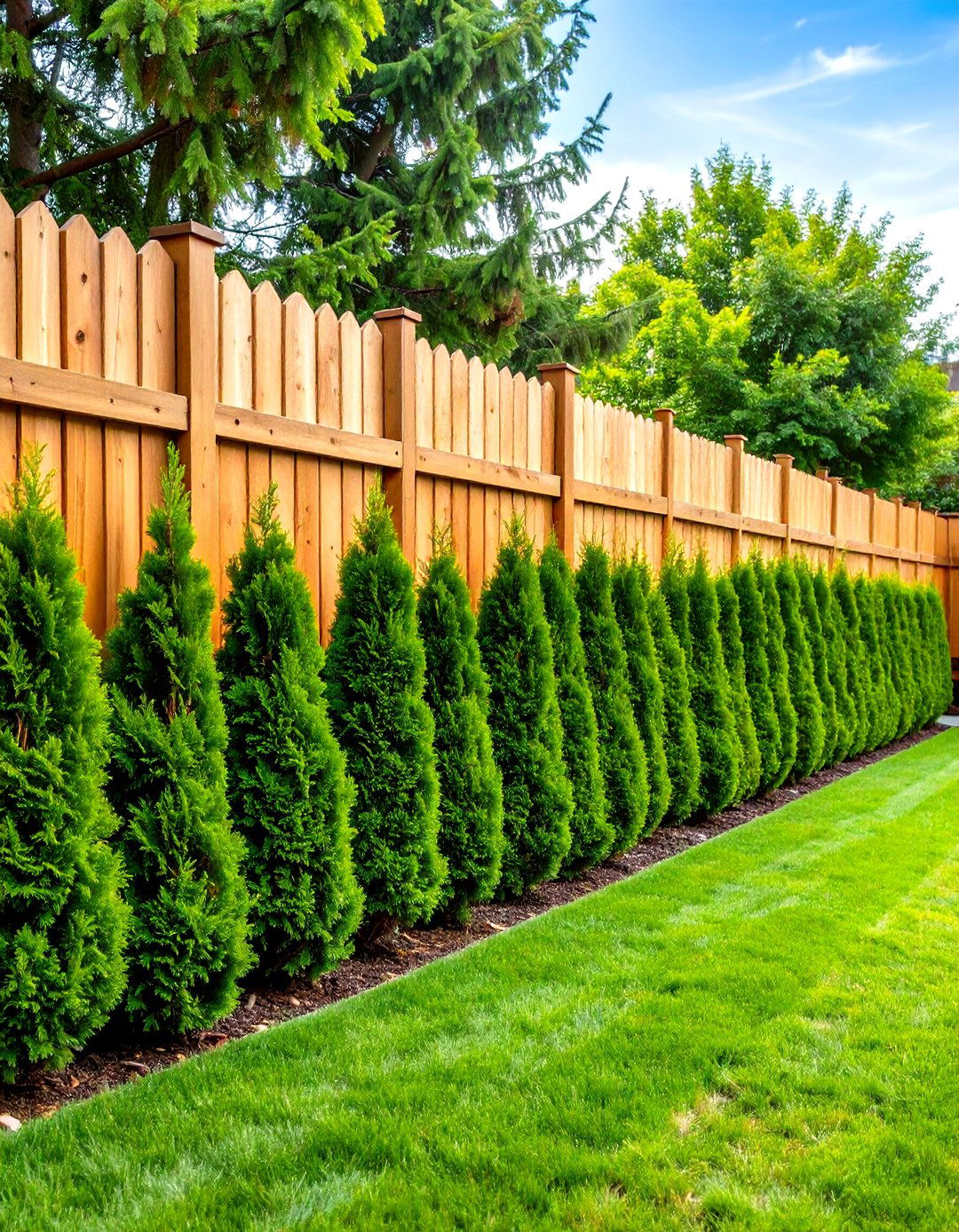
Evergreen shrubs create year-round privacy screens that require minimal maintenance once established. Arborvitae varieties like Green Giant or Emerald Green form dense, upright barriers reaching 8-15 feet tall while maintaining narrow profiles perfect for tight spaces. These conifers thrive in various soil conditions and provide consistent screening regardless of season. Plant them 3-4 feet apart for solid coverage within 2-3 years. Their naturally columnar growth habit means less pruning compared to other hedge options. Consider your mature space requirements when selecting varieties, as some can spread 6-8 feet wide at maturity. These reliable evergreens establish strong property boundaries while adding structure to landscape designs.
2. Mixed Shrub Foundation Plantings
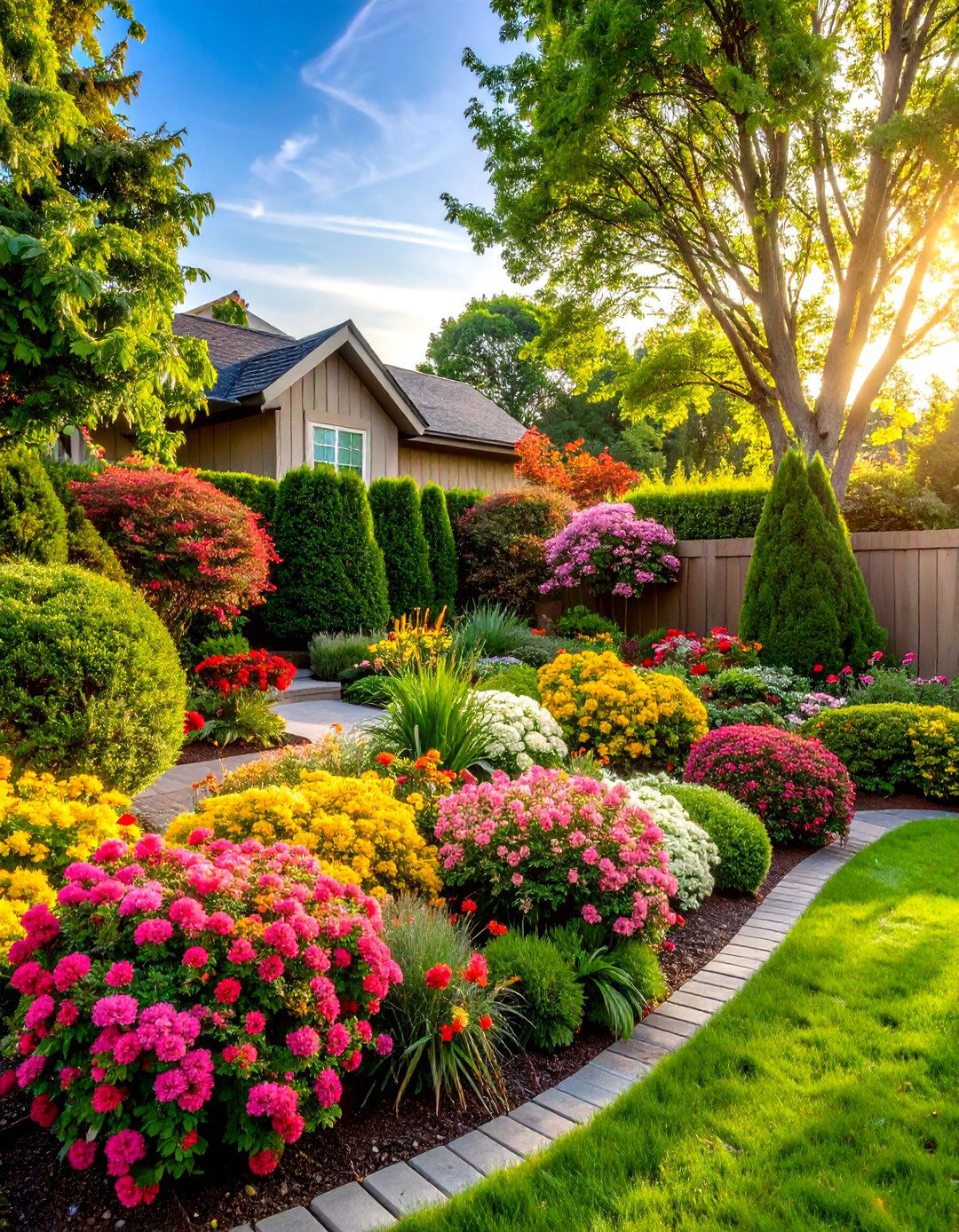
Combining different shrub varieties creates visual interest while providing varied heights and textures along fence lines. Layer boxwood in front, viburnum in the middle, and holly or lilac toward the back for a graduated look. This approach offers seasonal changes through flowering periods and fall color while maintaining some year-round structure. Mixed plantings reduce pest and disease risks compared to monoculture hedges. Space plants according to their mature sizes, typically 4-6 feet apart for medium shrubs. Regular mulching helps retain moisture and suppress weeds between plants. What seasonal changes would you most enjoy seeing along your fence line? This versatile approach accommodates both formal and naturalistic garden styles.
3. Ornamental Grass Screen
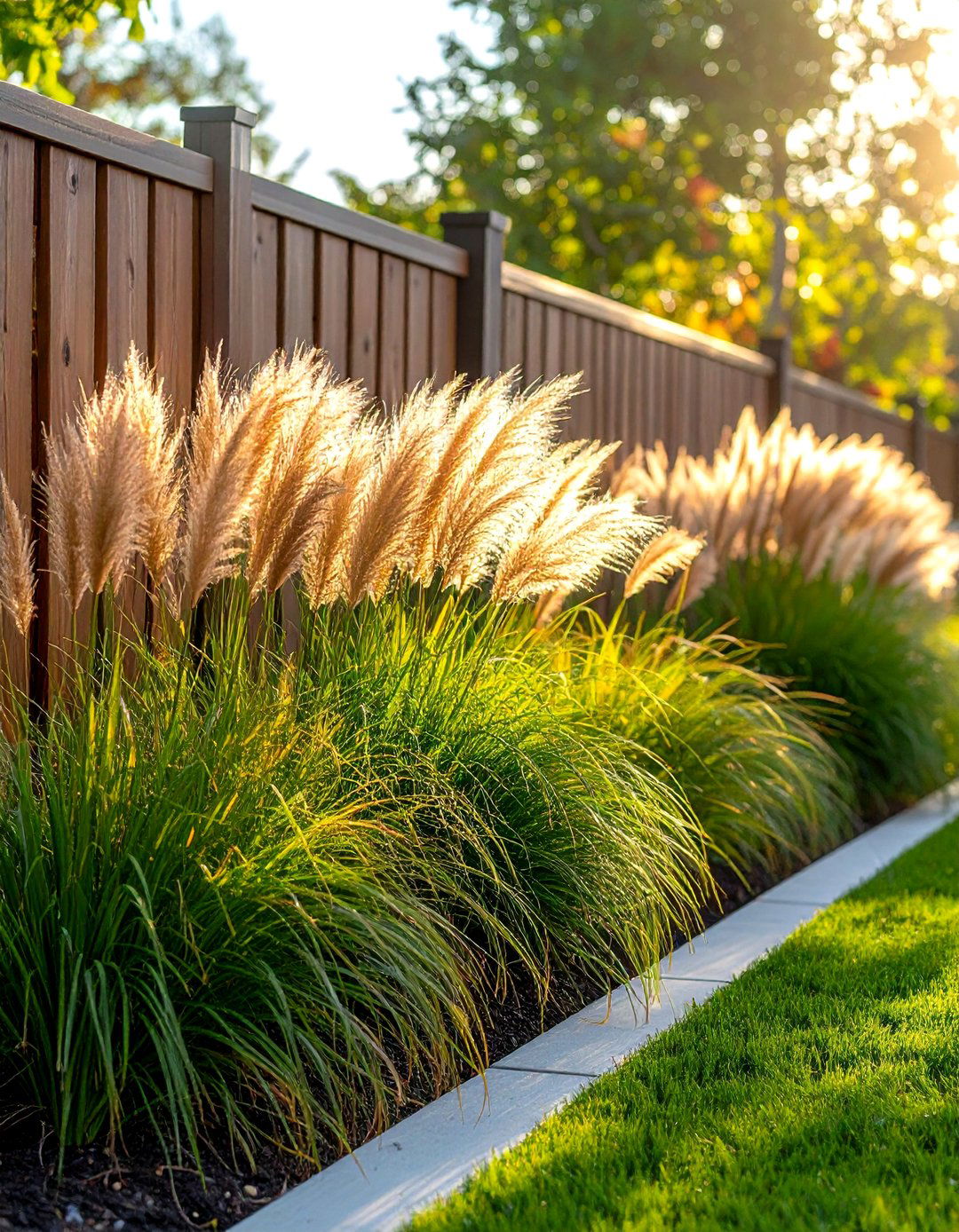
Ornamental grasses provide movement, texture, and seasonal interest while creating effective privacy barriers. Tall varieties like fountain grass, feather reed grass, or switchgrass reach 4-8 feet high, swaying gracefully in breezes. These low-maintenance perennials offer four-season appeal through spring emergence, summer growth, fall seed heads, and winter structure. Plant them in masses 2-3 feet apart for screen effect, or use as accent specimens. Most grasses prefer full sun and well-draining soil, making them ideal for difficult fence line conditions. Their upright growth habit creates vertical interest without requiring frequent trimming. Consider combining different grass varieties for varied heights and textures throughout the growing season.
4. Climbing Rose Wall Coverage
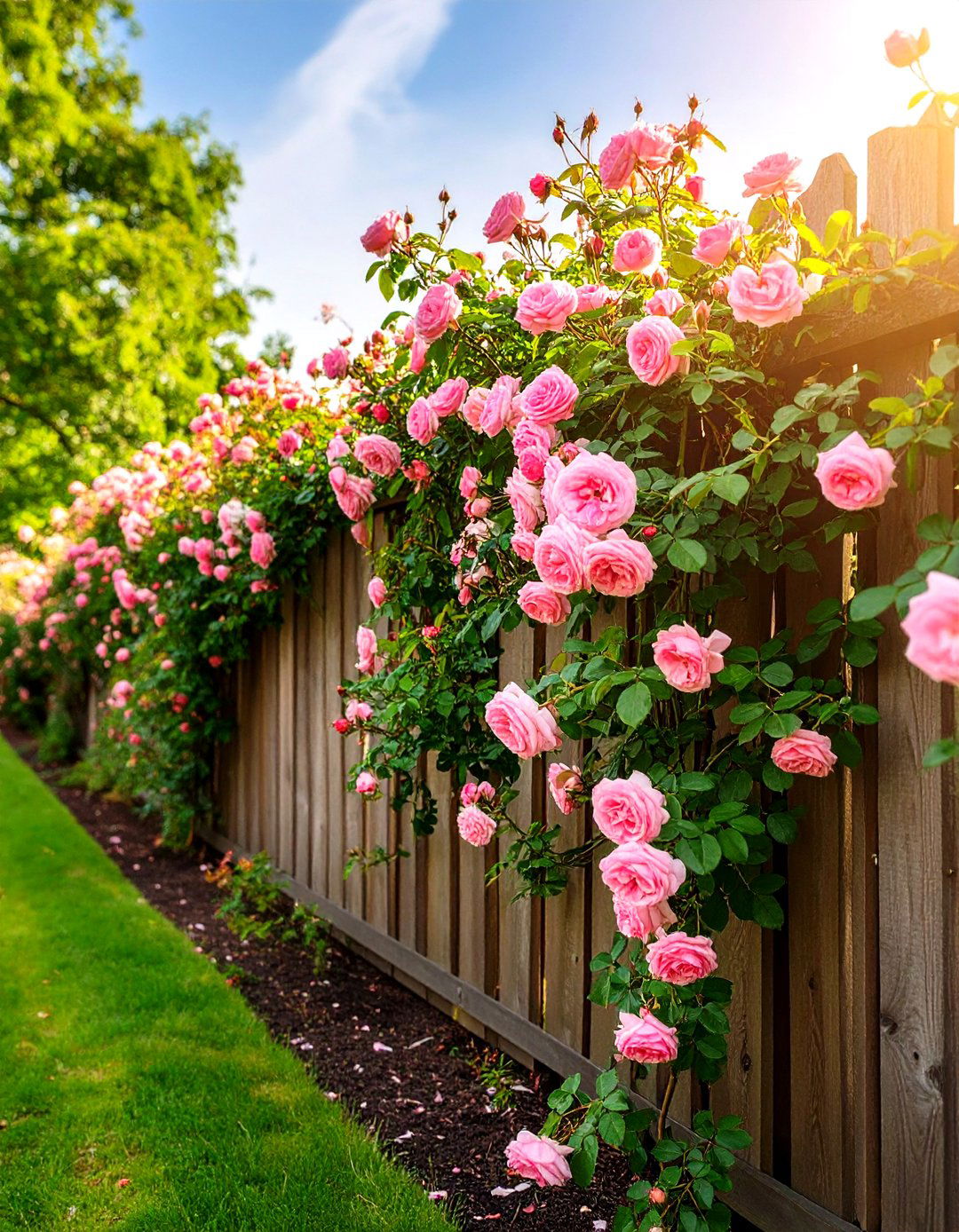
Climbing roses transform plain fences into romantic, fragrant displays throughout the growing season. Train vigorous varieties like Eden, Don Juan, or New Dawn against fence surfaces using horizontal wire supports spaced 18 inches apart. These flowering climbers can reach 8-12 feet, providing excellent coverage while producing abundant blooms from spring through fall. Plant roses 6-8 feet apart and provide morning sun with afternoon protection in hot climates. Regular feeding and pruning after flowering encourages healthy growth and repeat blooming. The thorny canes also add security value to privacy fences. Would you prefer fragrant varieties or continuous bloom cycles? Proper support systems prevent wind damage and ensure even coverage.
5. Clematis Vine Display
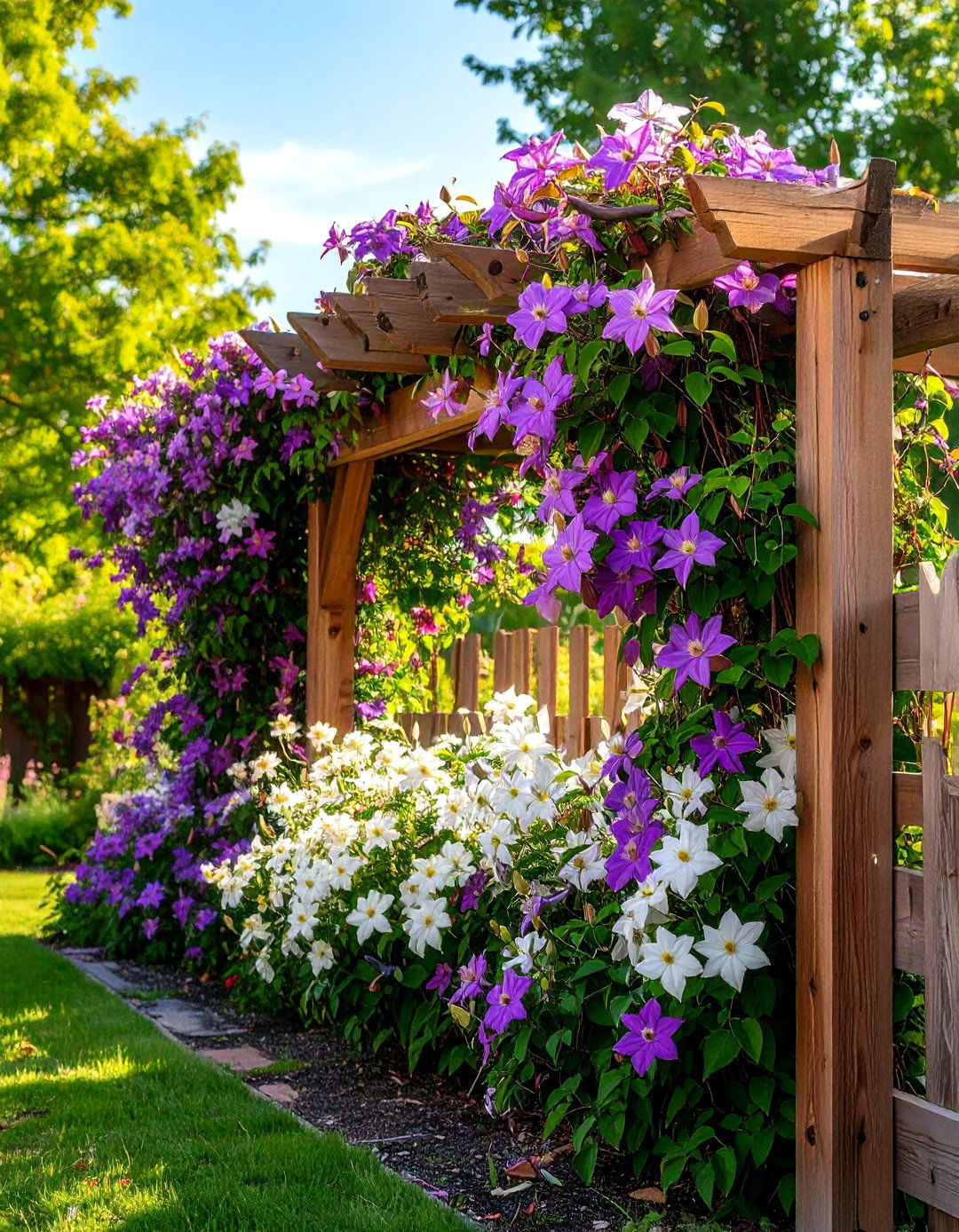
Clematis vines offer spectacular flowering displays with minimal ground space requirements, making them perfect for narrow fence line areas. These twining climbers produce large, showy blooms in purple, pink, white, or blue from spring through fall, depending on variety. Plant them with roots in shade and tops in sun for optimal performance. Install wire mesh or trellis systems for support, as clematis climbs by wrapping leaf stems around structures. Space plants 6-8 feet apart for full coverage. Group 1 varieties bloom on old wood, while Group 3 types flower on new growth, requiring different pruning approaches. Their dramatic flowers create focal points along otherwise plain fence sections.
6. Flower Border Garden
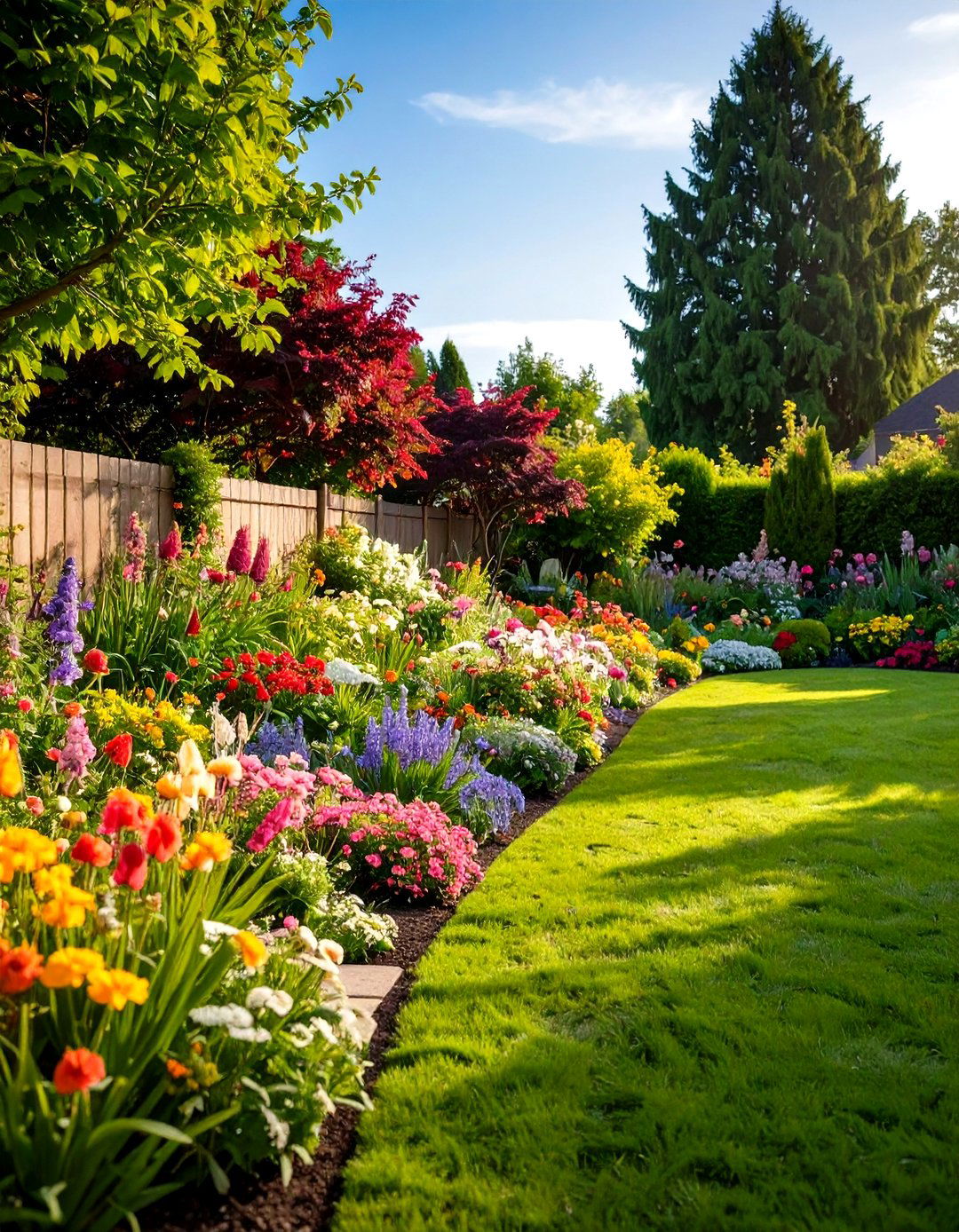
Perennial flower borders create colorful, changing displays throughout growing seasons while softening hard fence lines. Design with spring bulbs, summer perennials, and fall-blooming asters for continuous color. Layer plants by height with tall delphiniums or hollyhocks toward the fence, medium heights like peonies and phlox in the center, and low edging plants like catmint or alyssum in front. This traditional approach requires more maintenance than shrubs but provides unmatched seasonal variety. Consider bloom times when planning to ensure color succession. Adding annual flowers fills gaps while perennials establish. How important is continuous bloom versus seasonal peaks in your landscape design? Proper soil preparation ensures long-term success.
7. Container Garden Arrangement
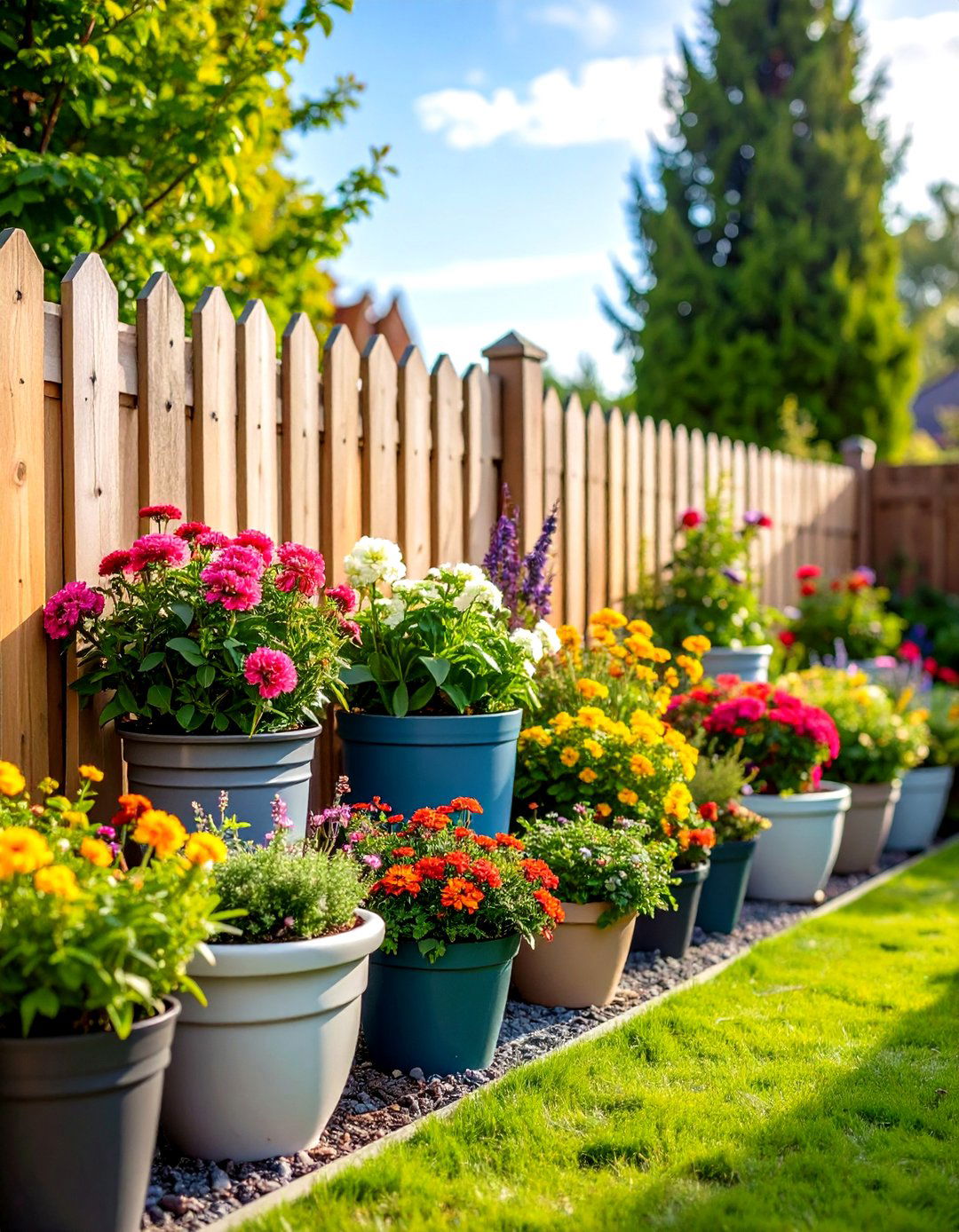
Container gardens offer flexibility and immediate impact along fence lines while allowing seasonal changes and plant experimentation. Use large planters in graduated sizes to create visual rhythm, filling them with annuals, perennials, or small shrubs according to seasonal preferences. This approach works particularly well for renters or areas with poor soil conditions. Group containers in odd numbers for natural appearance, varying heights and textures within each grouping. Ensure adequate drainage and regular watering, as container plants dry out faster than ground plantings. Consider wheeled planters for easy rearrangement and winter storage. What plants would you most enjoy changing seasonally? This method accommodates both permanent and temporary landscaping goals.
8. Herb Garden Border
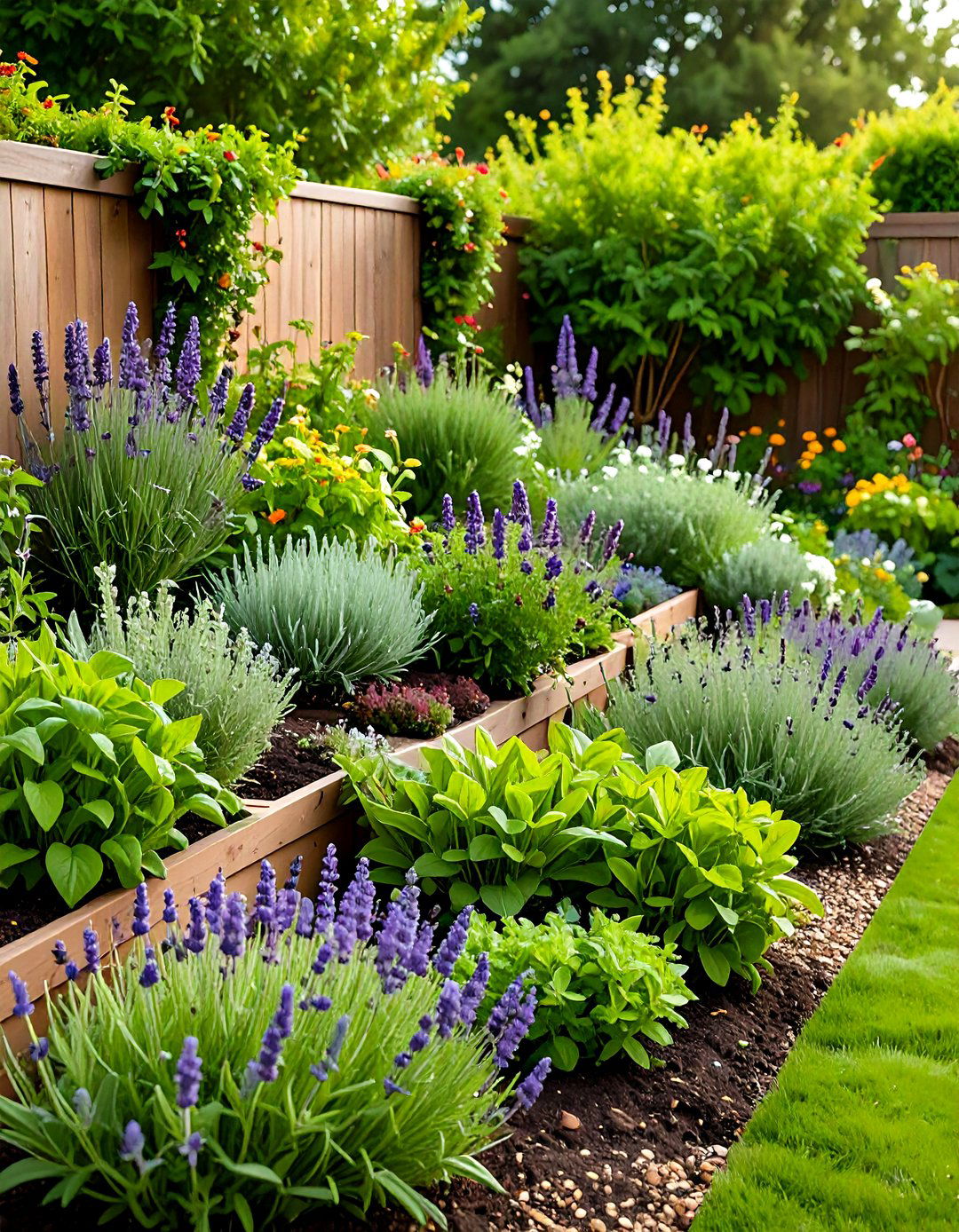
Herb borders combine practical growing space with attractive landscaping, creating fragrant, useful fence line plantings. Arrange culinary herbs like rosemary, lavender, sage, and thyme in front of taller herbs like fennel or angelica. Many herbs prefer well-draining soil and full sun, making them suitable for challenging fence line conditions. Their aromatic qualities also help deter pests naturally. Plant perennial herbs as permanent backbone plantings, adding annual herbs like basil and cilantro each season. Regular harvesting keeps plants compact and productive. Consider your cooking preferences when selecting varieties, focusing on herbs you'll actually use. This functional approach provides both landscape beauty and kitchen convenience while requiring minimal maintenance once established.
9. Native Plant Wildlife Corridor
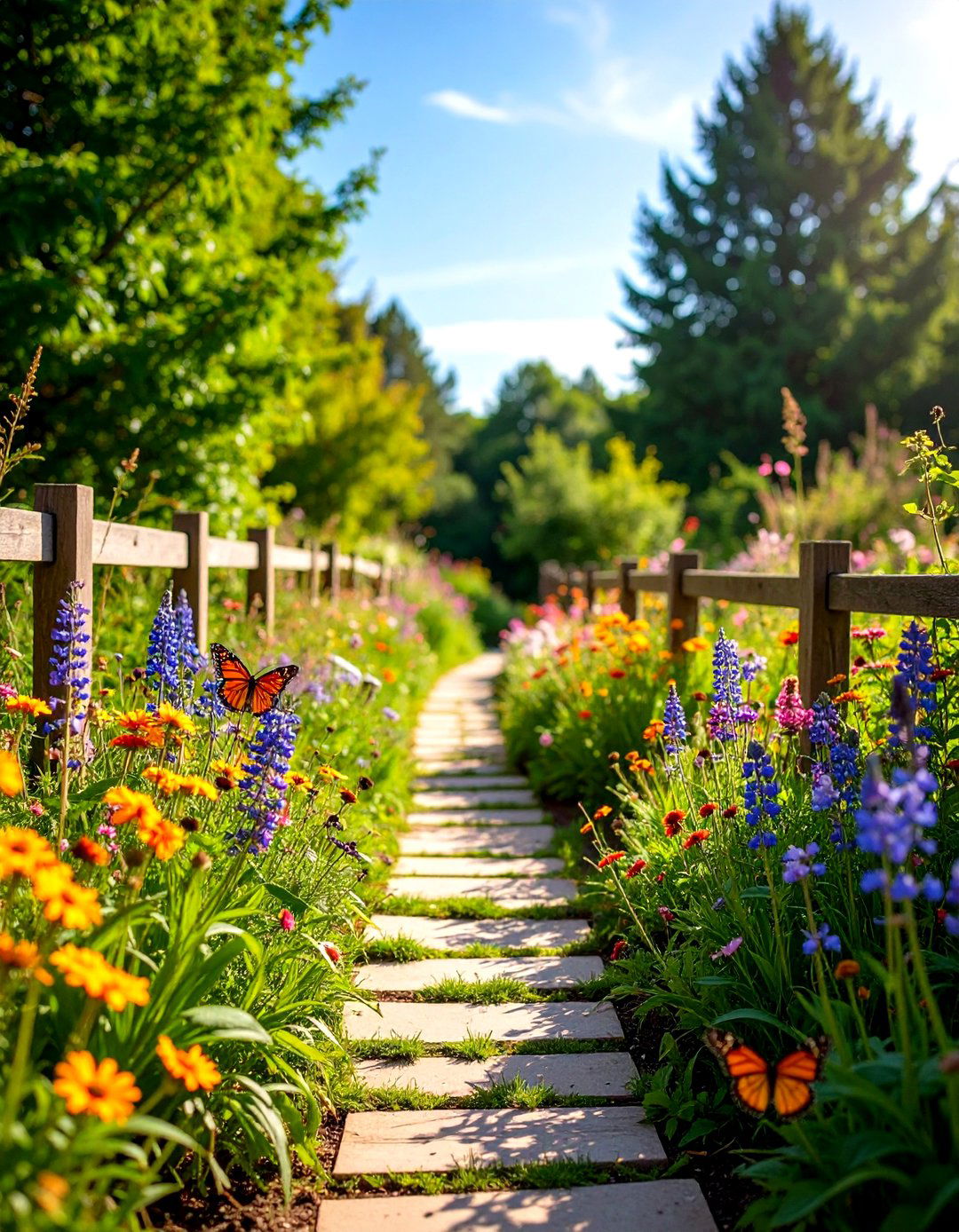
Native plant selections create wildlife-friendly corridors that support local ecosystems while providing natural beauty along fence lines. Research native species for your region, incorporating plants that provide food and shelter for birds, butterflies, and beneficial insects. Native plants typically require less water and maintenance once established, as they're adapted to local conditions. Layer different native species by height and bloom time to create year-round habitat value. Include berry-producing shrubs for winter bird food and host plants for butterfly larvae. Why not create a space that gives back to local wildlife? This sustainable approach reduces environmental impact while creating dynamic, evolving landscapes that change with seasons and wildlife activity.
10. Seasonal Color Display
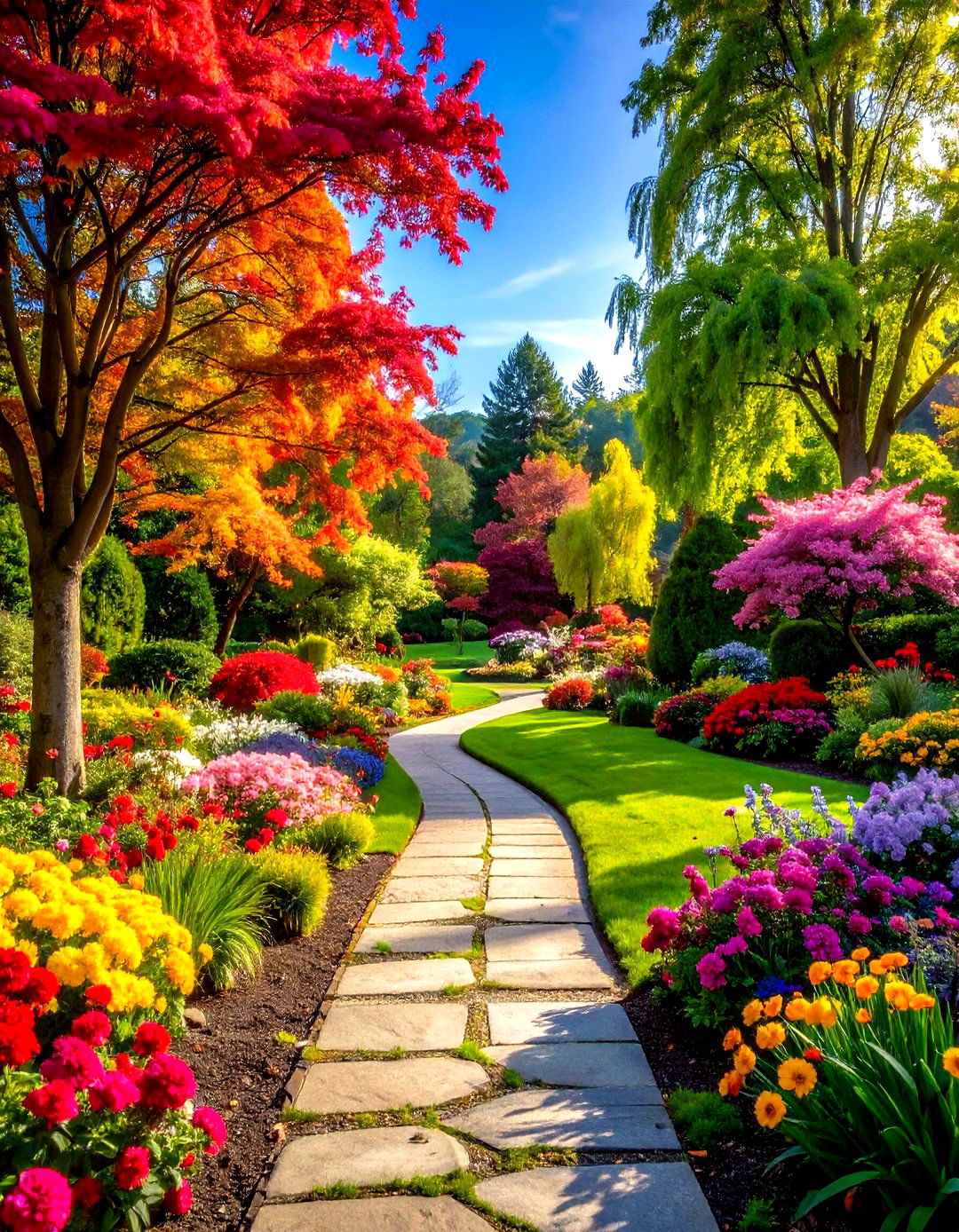
Plan fence line plantings for dramatic seasonal transitions, using plants selected specifically for spring flowering, summer foliage, fall color, and winter interest. Start with spring-blooming shrubs like forsythia or flowering quince, add summer perennials for continuous color, incorporate deciduous shrubs with brilliant fall foliage like burning bush or maple varieties, and finish with evergreens or plants with interesting winter bark or seed heads. This approach creates anticipation throughout the year as landscapes transform. Document peak times to refine plantings over time. Consider your main viewing seasons when planning emphasis. Would you prefer subtle transitions or bold seasonal statements? Proper planning ensures something attractive happens throughout the year.
11. Layered Landscape Design
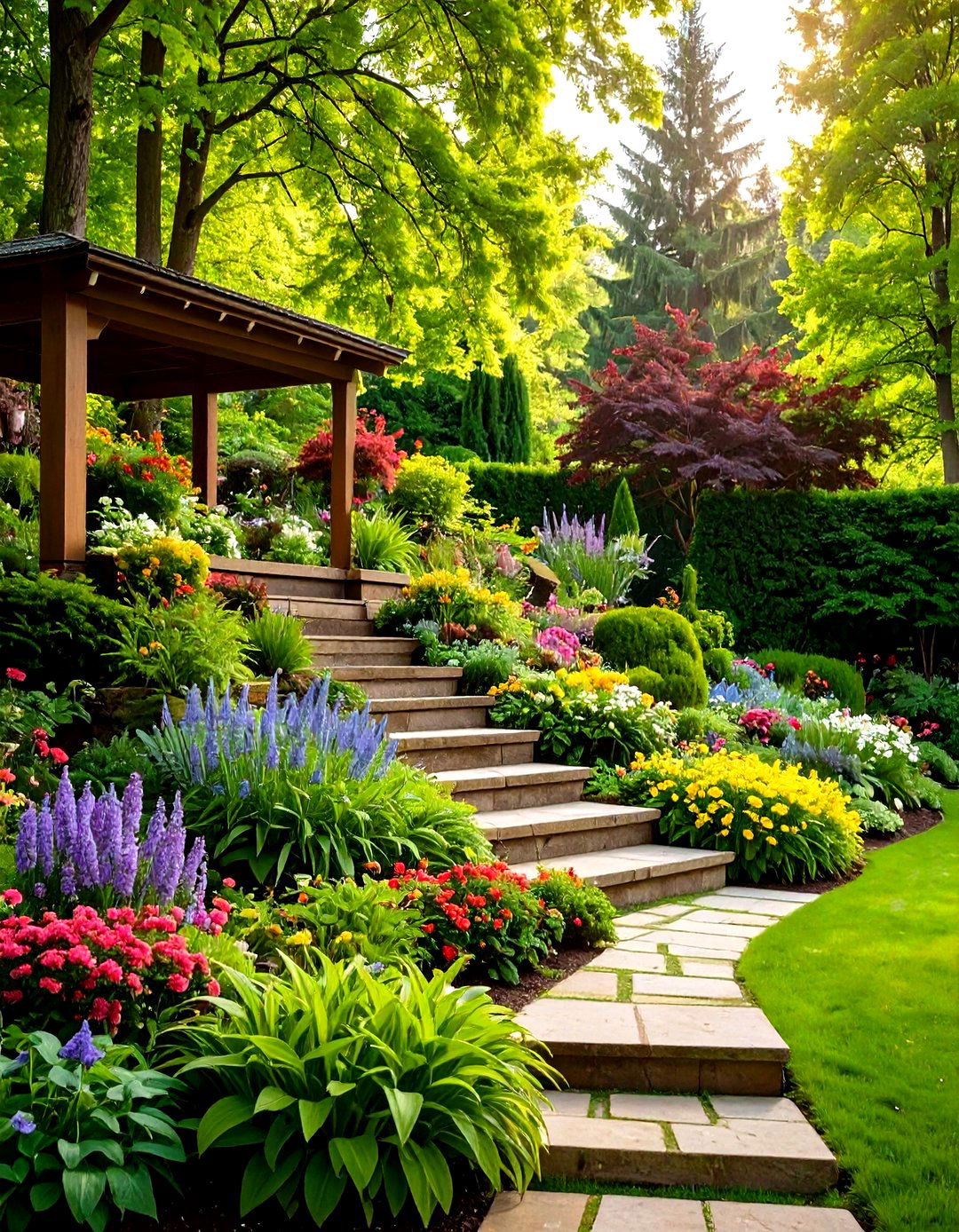
Create depth and visual interest by layering plants at different heights and distances from the fence, mimicking natural forest edge conditions. Place tall background plants against the fence, medium-height plants in the middle zone, and low groundcovers or edging plants toward pathways. This technique works with any plant types but requires careful attention to mature sizes and growth rates. Stagger plantings to avoid straight lines, creating natural curves and groupings. Include plants with different leaf textures and colors for added visual appeal. How wide is your available planting space? This professional approach creates sophisticated landscapes that appear established and naturally evolved rather than recently planted.
12. Ground Cover Carpet
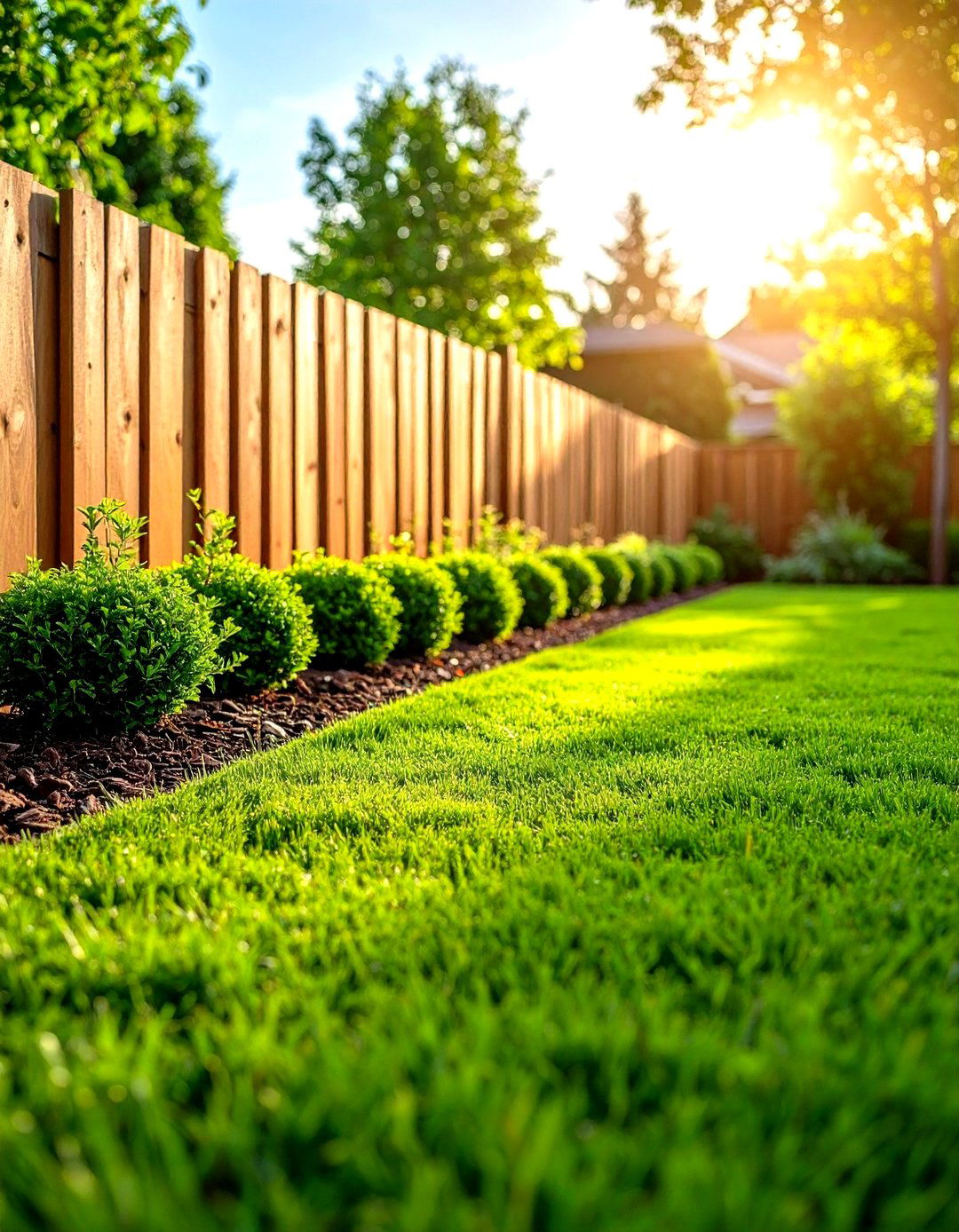
Low-growing ground covers create unified carpets of color and texture while suppressing weeds and reducing maintenance along fence bases. Spreading varieties like pachysandra, vinca, or ajuga form dense mats that eliminate the need for mulching once established. Choose varieties appropriate for your light conditions, from shade-loving hostas to sun-preferring sedum. Plant ground covers closer together initially for faster coverage, typically 12-18 inches apart depending on variety. While slower to establish than annual plantings, ground covers provide long-term, low-maintenance solutions. Some varieties offer seasonal flowers as bonus features. Consider your patience level versus long-term maintenance preferences when selecting this approach. Once established, ground covers require minimal care beyond occasional trimming.
13. Solar Lighting Integration
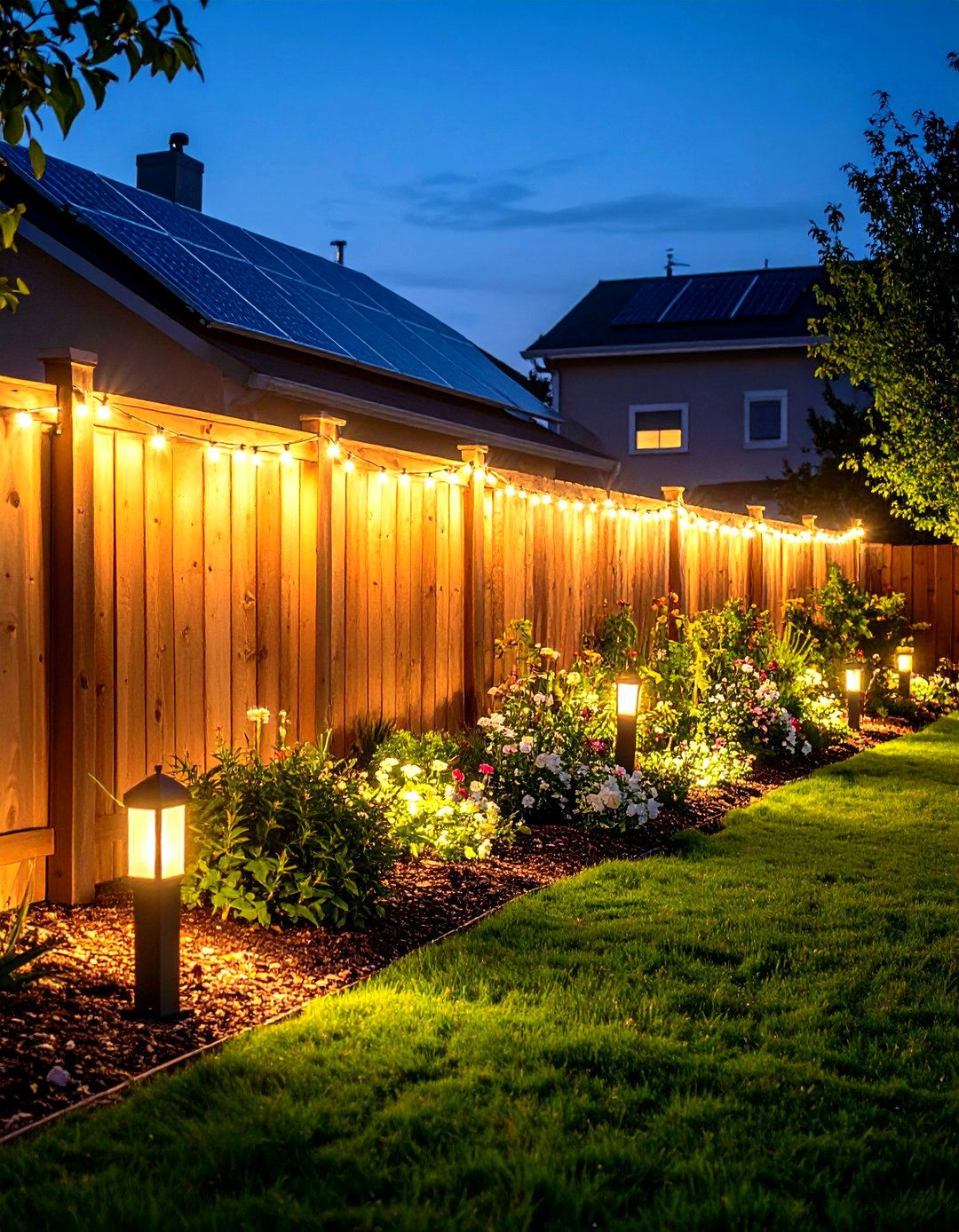
Incorporate solar-powered lighting into fence line landscapes to extend enjoyment into evening hours while highlighting plantings and providing safety illumination. Solar post lights, string lights, or spot lights require no electrical connections, making installation simple and flexible. Position lights to accent key plants or create pathway definition along fence lines. Many solar options now provide adequate brightness for functional lighting while maintaining attractive daytime appearance. Consider battery quality and solar panel efficiency when selecting fixtures, as these determine reliability and longevity. Seasonal adjustments may be needed in areas with limited winter sun. How do you currently use your outdoor spaces after dark? This addition transforms fence lines into evening features while improving outdoor safety.
14. Decorative Fence Planters
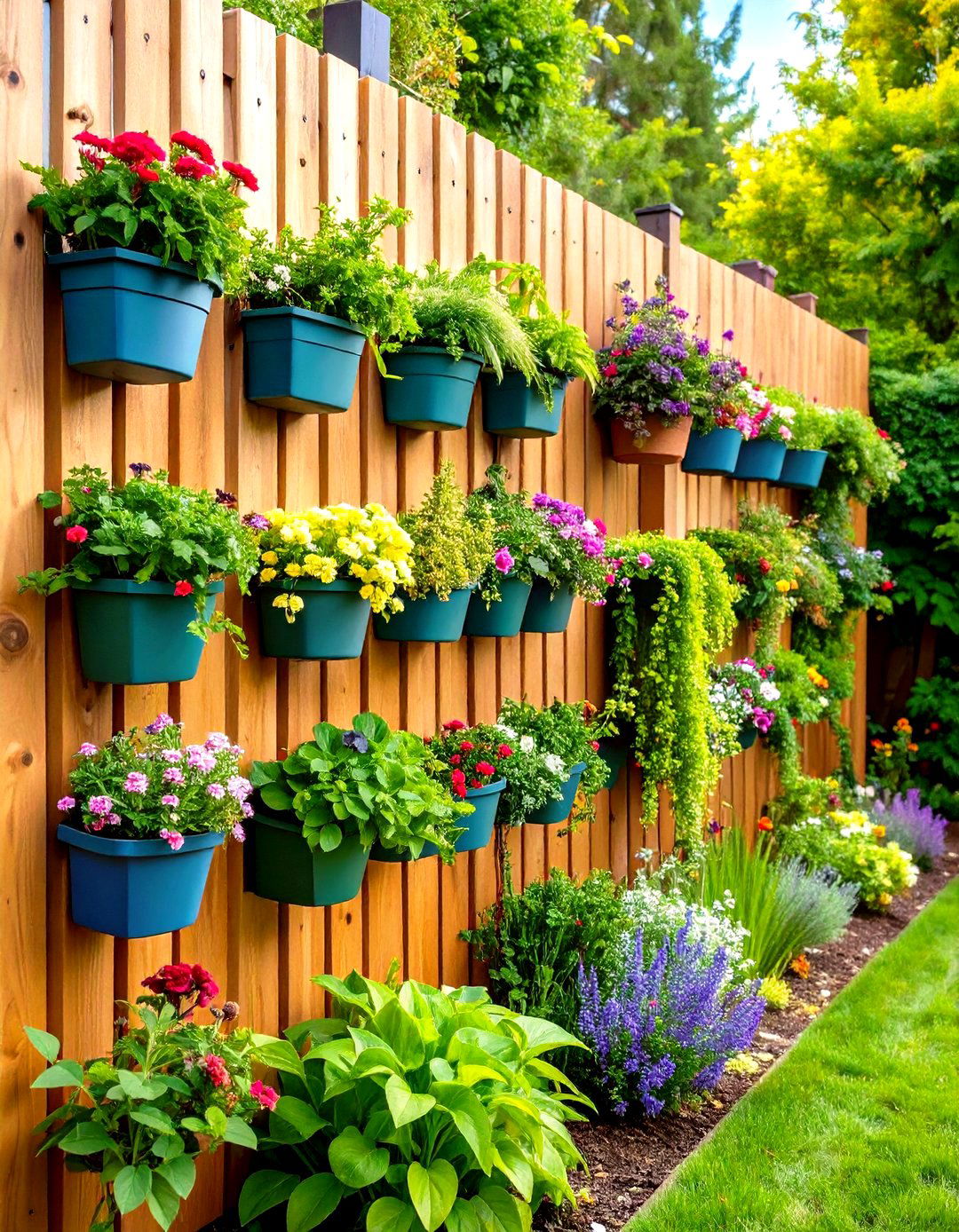
Attach decorative planters directly to fence surfaces to create vertical growing space without using ground area. Wall-mounted planters work well for herbs, small flowers, or trailing plants that cascade over planter edges. Ensure adequate drainage and easy access for watering, as elevated planters dry out quickly. Use lightweight potting soil rather than garden soil to reduce weight on fence structures. Consider irrigation systems for larger installations or hard-to-reach locations. This approach works particularly well for narrow spaces where ground planting isn't possible. Secure mounting hardware appropriately for planter weight when filled with wet soil. What types of plants would you most enjoy growing at eye level? This vertical approach maximizes growing space in minimal square footage.
15. Bamboo Privacy Screen

Fast-growing bamboo creates rapid privacy screens with distinctive vertical texture and gentle movement in breezes. Choose clumping varieties rather than running types to prevent unwanted spreading, or install root barriers for running bamboo. Bamboo provides year-round screening while adding exotic appeal to landscapes. Plant bamboo 3-5 feet apart for quick screening effect, as most varieties reach 6-20 feet tall depending on species. Regular watering during establishment helps ensure rapid growth. Consider your climate zone carefully, as some bamboo varieties are tender in cold regions. Bamboo also works well in containers for portable screening. Are you prepared for fast growth and regular maintenance? This choice provides almost instant privacy but requires ongoing management.
16. Fragrant Plant Border
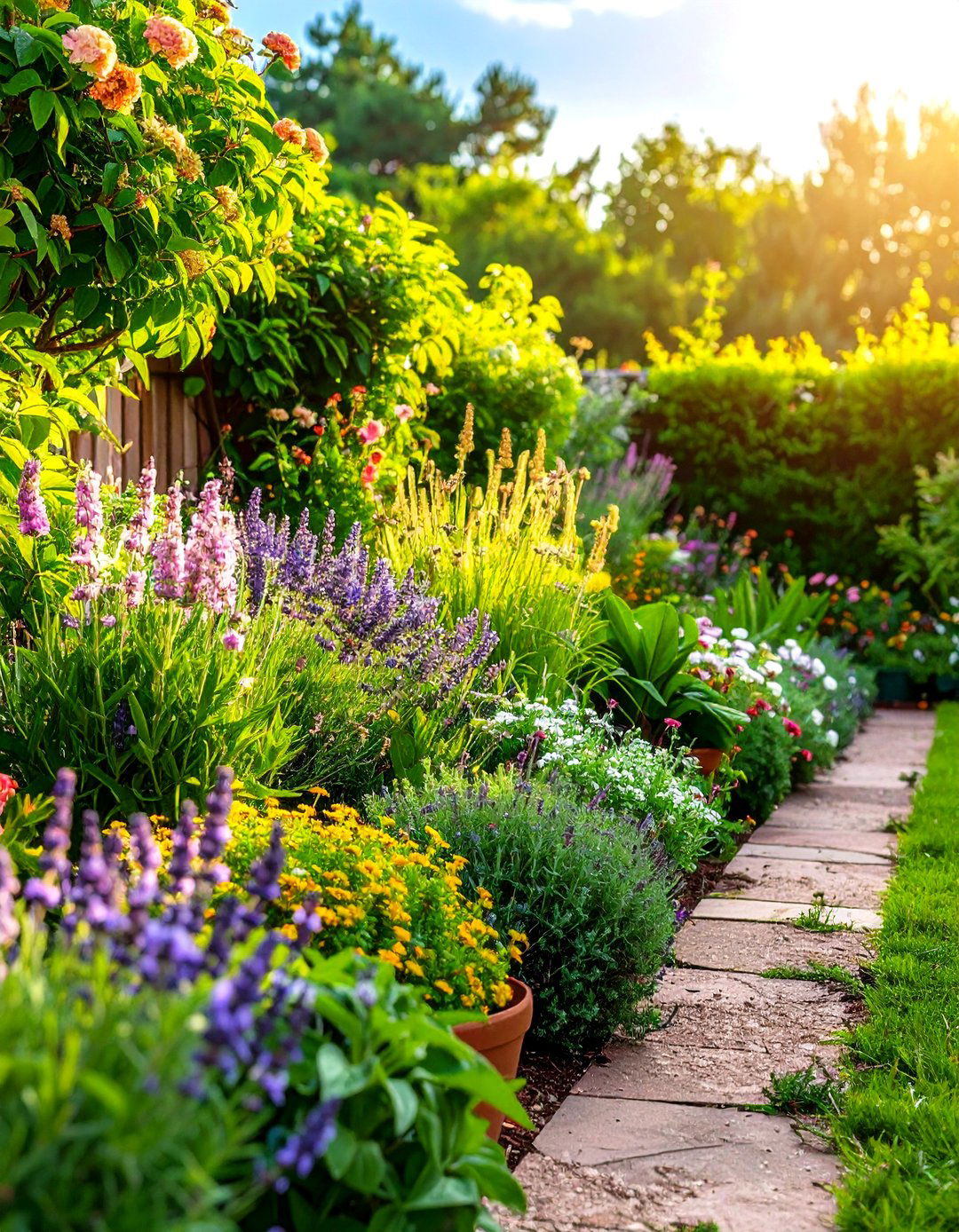
Design fence line plantings around fragrant plants that release pleasant scents when brushed against or warmed by sun. Include lavender for its classic perfume, jasmine for evening fragrance, honeysuckle for sweet summer scents, and herbs like rosemary or mint for culinary aromas. Position fragrant plants near seating areas, walkways, or windows where scents can be best appreciated. Many fragrant plants also attract beneficial pollinators, adding wildlife value to landscapes. Consider bloom times and scent intensities when planning combinations, avoiding overwhelming mixtures. Some plants release fragrance primarily in evening hours, perfect for outdoor entertaining spaces. How important are scented gardens in your outdoor experience? This sensory approach engages multiple senses while providing traditional landscape beauty.
17. Textural Foliage Combination
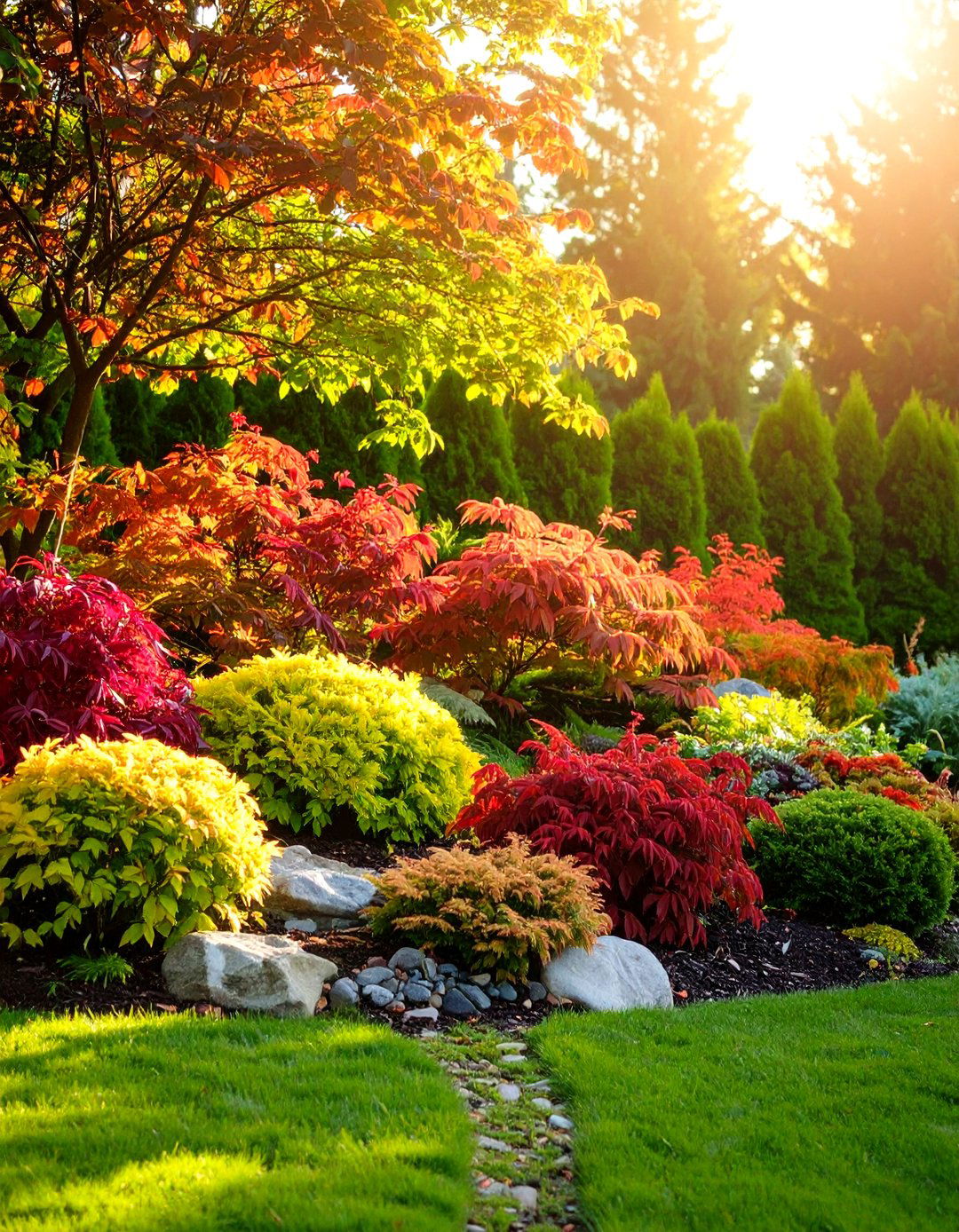
Focus on plants with interesting leaf shapes, sizes, and textures rather than flowers for year-round visual appeal along fence lines. Combine broad-leafed plants like hostas with fine-textured grasses, spiky plants like yucca with soft, rounded shrubs, and glossy evergreens with matte-finished perennials. This approach creates sophisticated landscapes that rely on form and texture rather than color for impact. Include plants with variegated foliage or unusual leaf colors for added interest without depending on blooming periods. Textural gardens photograph beautifully and provide constant visual appeal regardless of season. They also tend to require less maintenance than flower-focused designs. What textures do you find most appealing in garden settings? This understated approach creates elegant, timeless landscapes.
18. Drought-Tolerant Display

Select plants adapted to dry conditions for fence line areas that receive limited irrigation or natural rainfall. Succulents, ornamental grasses, Mediterranean herbs, and native prairie plants often thrive in challenging conditions while providing attractive landscapes. These plants typically require excellent drainage and full sun exposure. Group plants with similar water needs together for efficient irrigation management. Mulch with gravel or stone rather than organic materials in very dry climates. This sustainable approach reduces water consumption while creating resilient landscapes. Many drought-tolerant plants offer striking architectural forms and seasonal color despite their tough nature. Consider your local rainfall patterns and irrigation availability when planning. This practical approach creates beautiful landscapes that work with natural conditions rather than against them.
19. Butterfly and Pollinator Garden
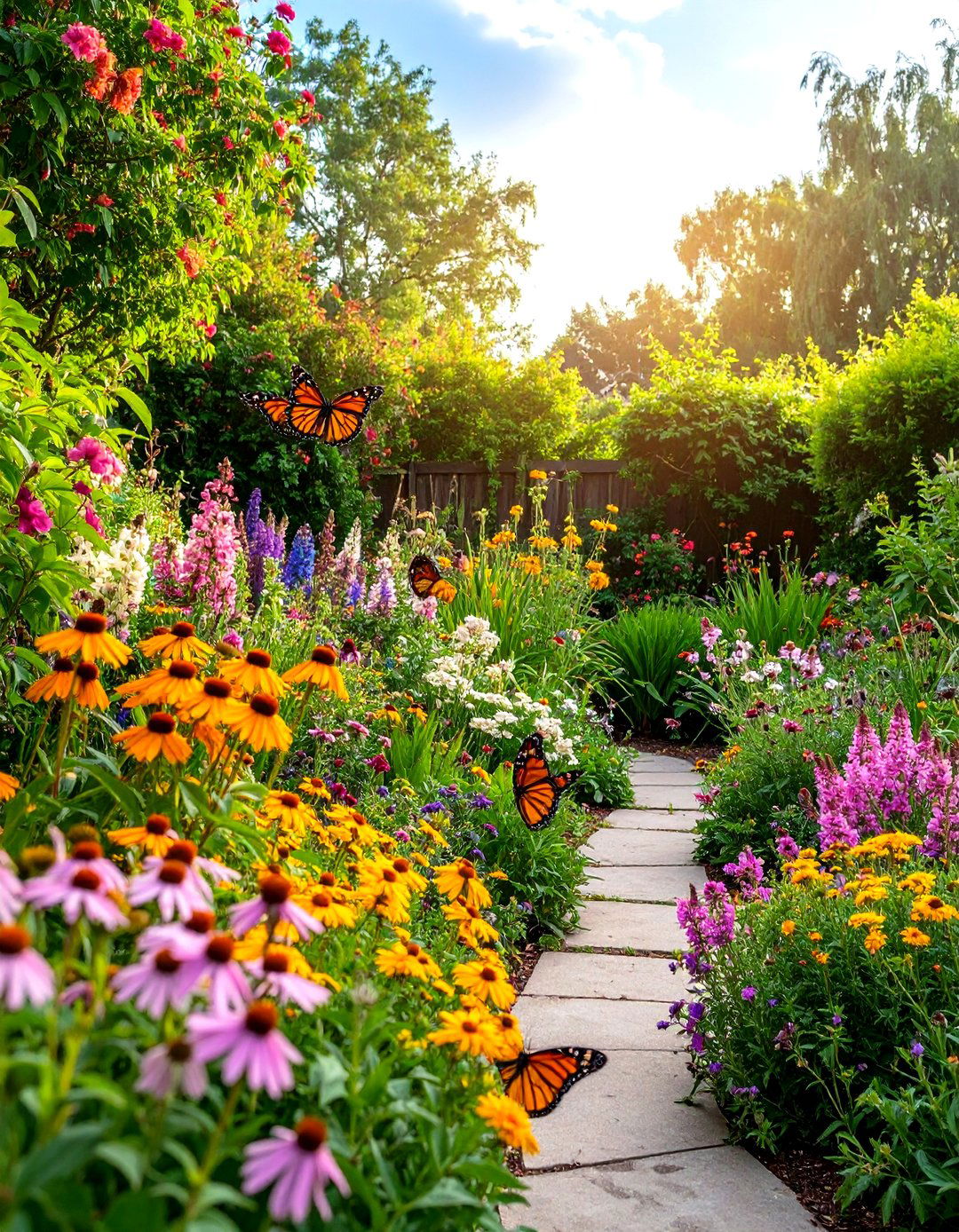
Design fence line plantings specifically to attract butterflies, bees, and other beneficial pollinators using nectar-rich flowering plants and host plants for butterfly larvae. Include plants that bloom sequentially throughout growing seasons to provide continuous food sources. Native plants often provide the best pollinator value while requiring less maintenance. Group similar plants in masses rather than scattered individuals for greater visual and ecological impact. Include shallow water sources and basking spots for complete pollinator habitat. Avoid pesticide use in these areas to protect beneficial insects. Document which species visit your garden to refine plant selections over time. Why not create a space that actively supports local ecosystems? This approach combines environmental stewardship with garden beauty.
20. Edible Landscape Border
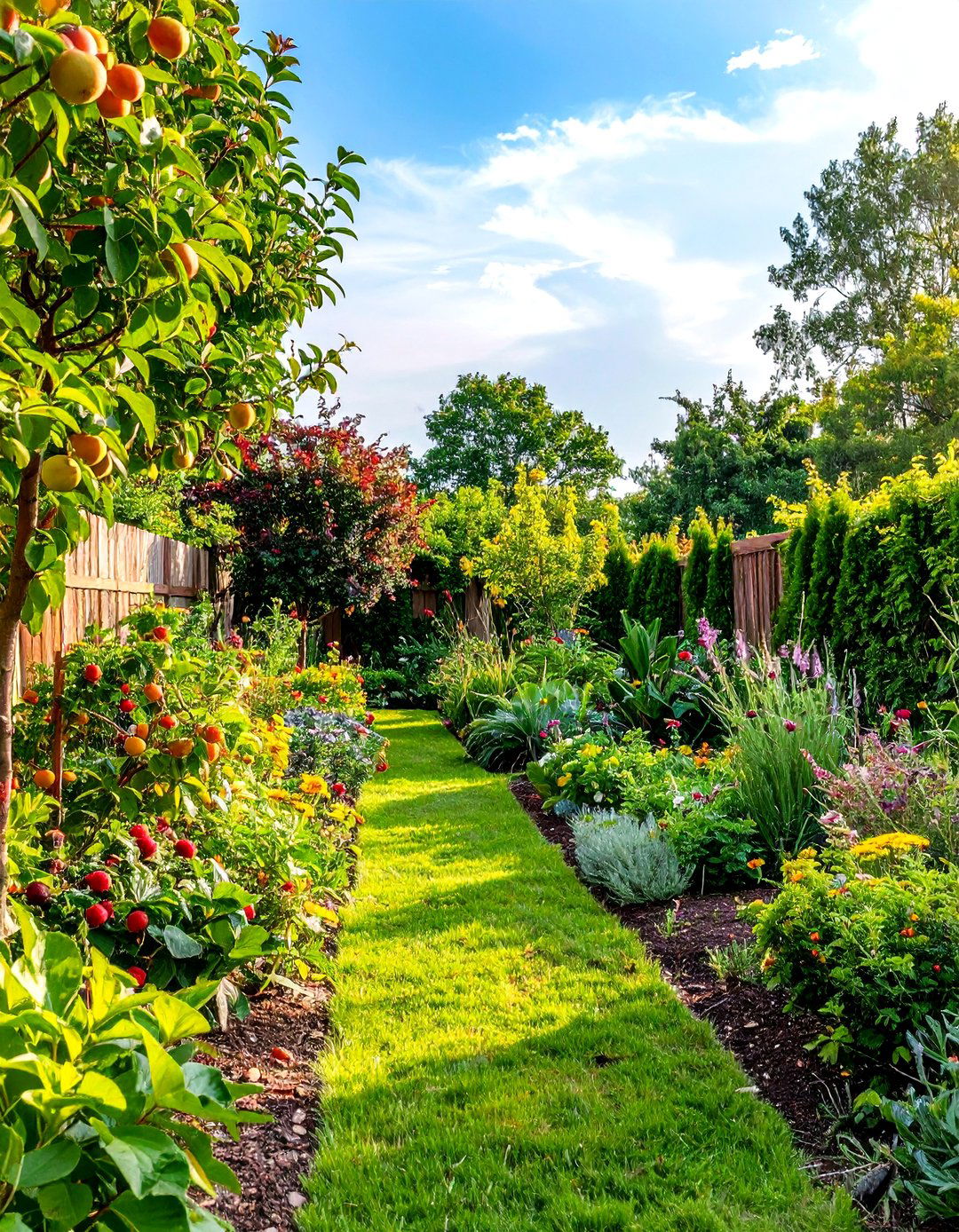
Incorporate food-producing plants into fence line landscapes for both beauty and utility. Fruit trees or berry bushes provide seasonal flowers, attractive foliage, and edible harvests. Train espalier fruit trees against fence surfaces to save space while creating living art. Include edible flowers, culinary herbs, and attractive vegetables like Swiss chard or purple cabbage. This approach requires more active management than ornamental plantings but provides tangible rewards. Consider your eating preferences and cooking habits when selecting edible plants. Some locations may have restrictions on front yard food growing, so check local regulations. How would you use homegrown produce in your kitchen? This practical approach combines landscape beauty with sustainable food production.
21. Four-Season Interest Design
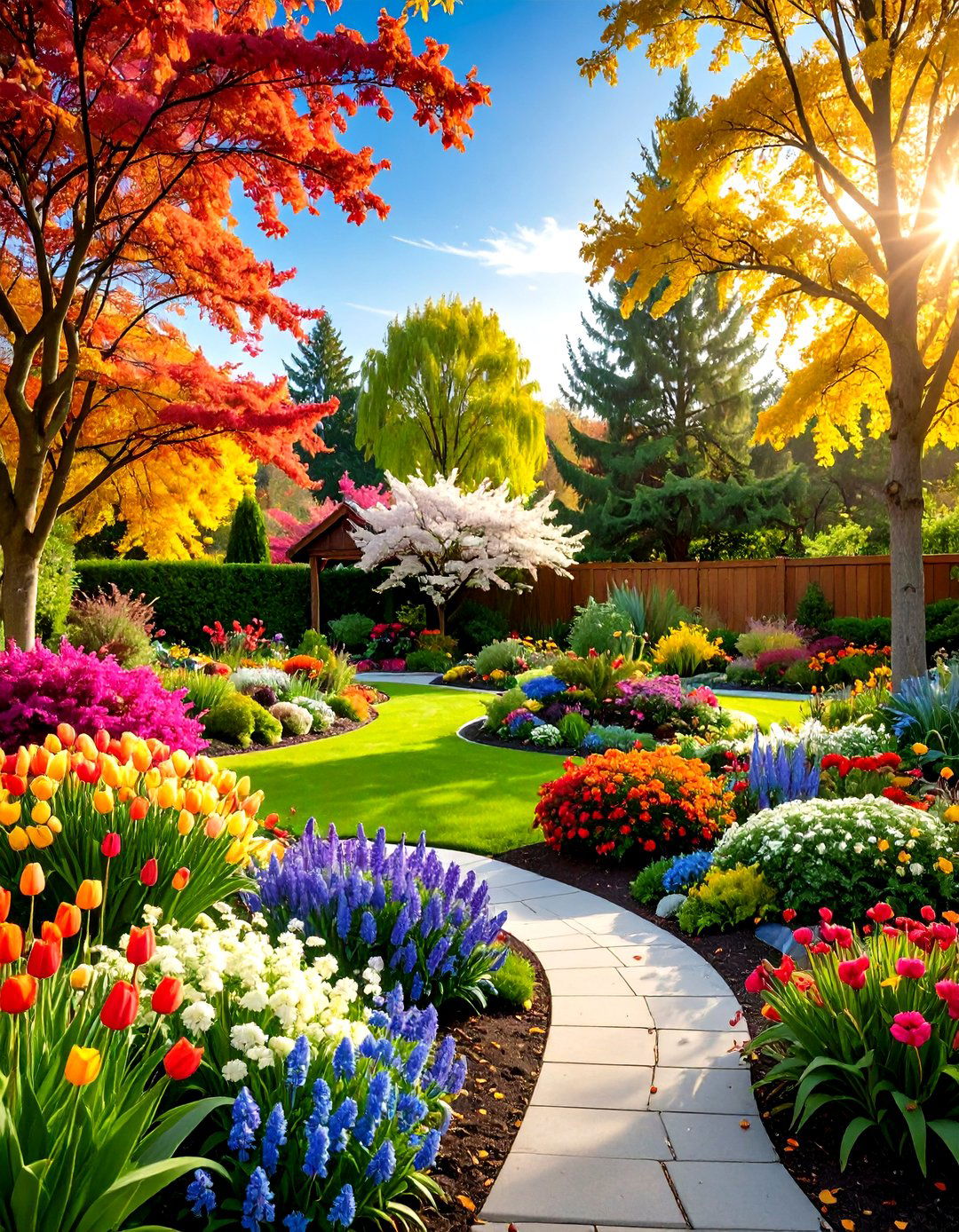
Plan fence line landscapes to provide visual appeal throughout all seasons by carefully selecting plants for spring flowers, summer foliage, fall color, and winter structure. Include early-blooming bulbs, deciduous shrubs with colorful autumn leaves, evergreens for winter backbone, and plants with interesting bark or seed heads. This comprehensive approach ensures landscapes never look dormant or boring. Consider your primary viewing seasons when emphasizing certain elements. Document seasonal changes to identify gaps in visual interest and adjust plantings accordingly. Include plants with different peak performance times rather than focusing on single-season impact. What seasons do you spend most time outdoors? This thoughtful planning creates landscapes that reward attention throughout the year with constantly changing beauty.
22. Modern Minimalist Planting
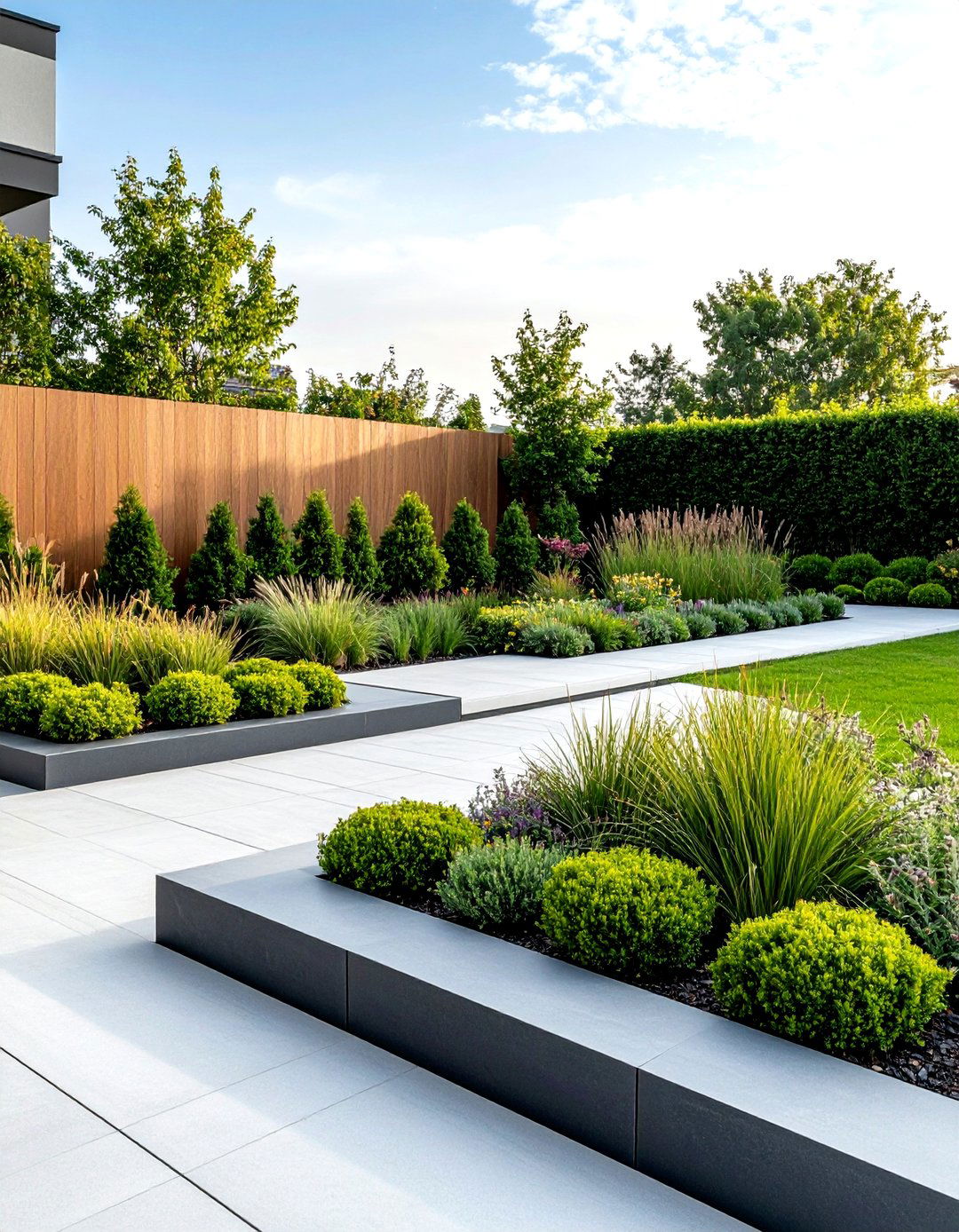
Create clean, contemporary fence line landscapes using limited plant varieties in bold masses rather than diverse mixtures. Focus on architectural plants with strong forms like ornamental grasses, boxwood spheres, or linear plantings of single species. Use consistent spacing and geometric arrangements for formal appearance. This approach requires careful attention to plant selection and maintenance to achieve desired effects. Include hardscape elements like steel edging or gravel mulch for crisp lines. Minimalist designs often require more initial investment in larger plant quantities but result in lower long-term maintenance. Consider your aesthetic preferences and maintenance capabilities. This sophisticated approach creates striking modern landscapes that complement contemporary architecture while requiring disciplined upkeep.
23. Cottage Garden Style Border
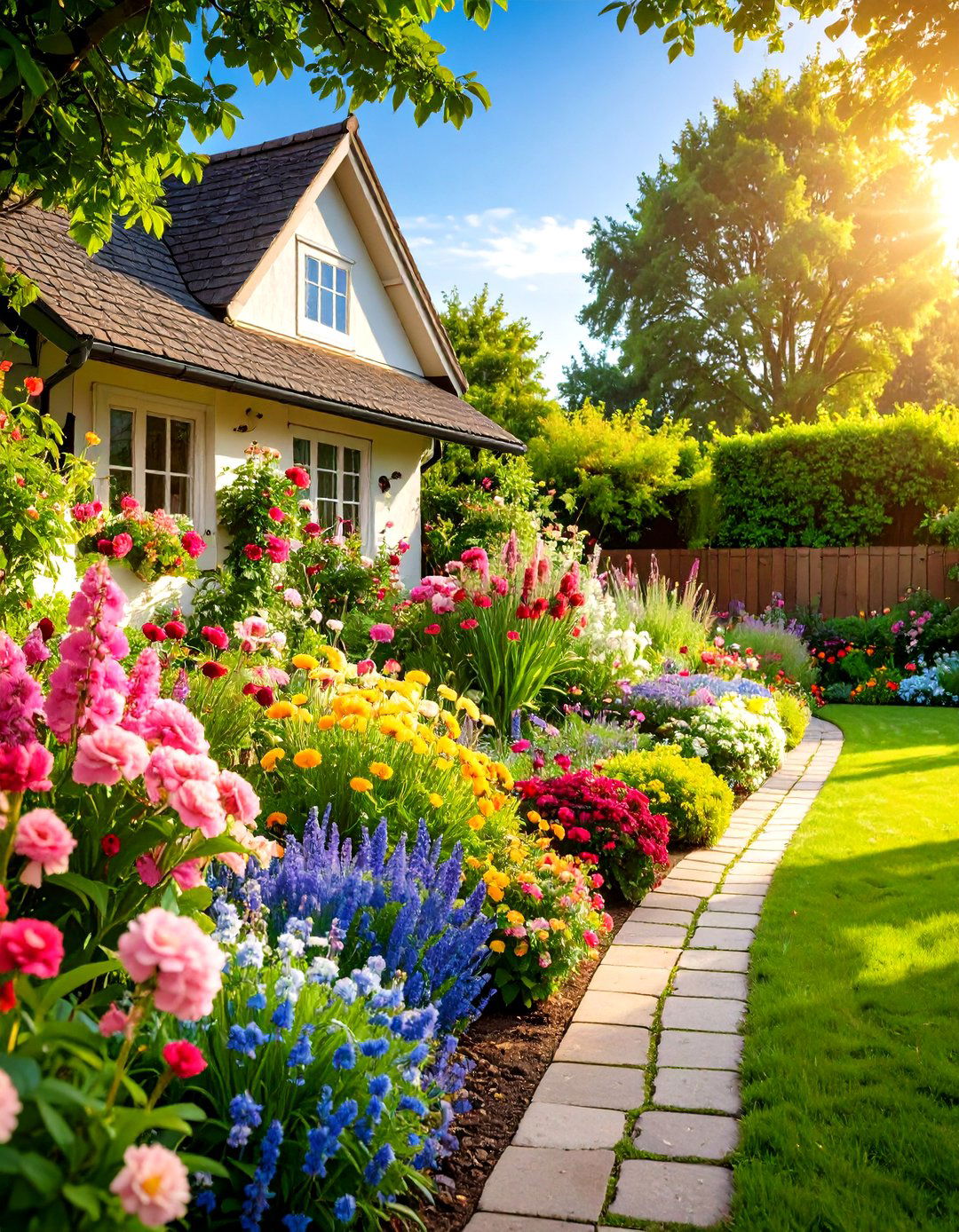
Create informal, abundant fence line plantings that mix flowers, herbs, and small shrubs in casual arrangements reminiscent of traditional cottage gardens. Allow plants to self-seed and intermingle naturally while maintaining basic structure through pruning and editing. Include old-fashioned favorites like roses, hollyhocks, lavender, and delphiniums. This romantic style emphasizes abundance over precision, creating relaxed, welcoming landscapes. Regular deadheading and seasonal cleanup maintain health while preserving informal character. Cottage gardens often include practical plants alongside ornamentals, blending beauty with utility. How important is garden formality versus natural abundance in your outdoor space? This charming approach creates landscapes that appear to have evolved naturally over time while providing continuous seasonal interest.
24. Vertical Garden Installation
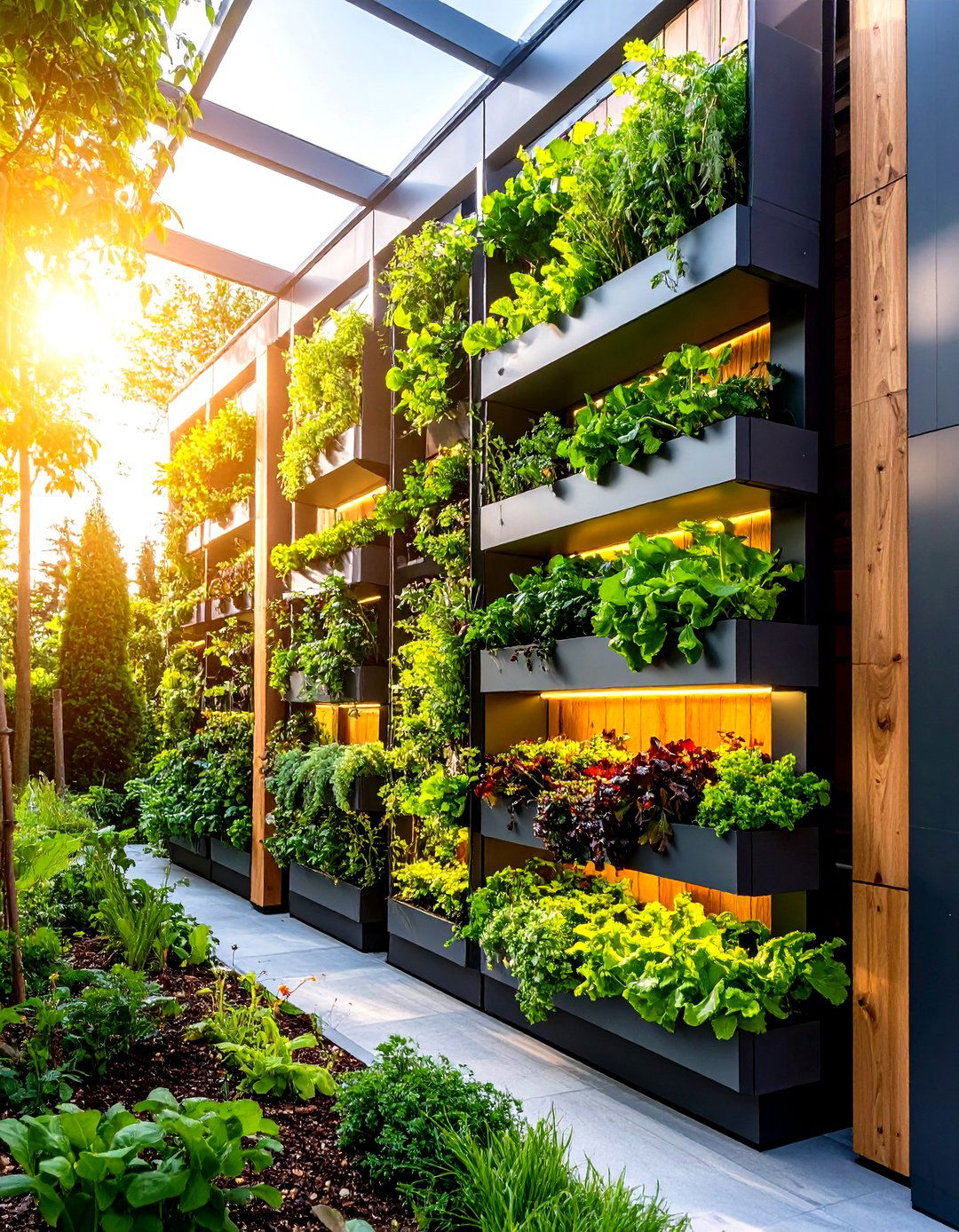
Maximize growing space by installing vertical growing systems directly on fence surfaces, creating living walls that don't require ground space. Use modular planting systems, pocket planters, or custom-built vertical structures to support various plants from groundcovers to small shrubs. Ensure adequate irrigation systems for vertical installations, as they dry out more quickly than ground plantings. Consider weight distribution and structural support when planning extensive vertical gardens. This innovative approach works well in narrow spaces or areas with poor soil. Include trailing plants that cascade over system edges for softer appearance. Regular maintenance access is essential for vertical systems. Are you interested in cutting-edge gardening techniques? This modern solution maximizes plant impact in minimal space while creating striking architectural features.
Conclusion:
Fence line landscaping transforms ordinary boundaries into dynamic garden features that enhance both property value and outdoor enjoyment. Whether you choose simple evergreen screens for year-round privacy, colorful flower borders for seasonal drama, or innovative vertical growing systems for maximum impact, the key lies in matching plant selections to your specific site conditions, maintenance preferences, and aesthetic goals. Consider factors like available space, sunlight exposure, soil conditions, and local climate when making plant choices. Remember that successful fence line landscapes often combine multiple approaches, layering different plant types and design elements for complex, interesting results. Start with a basic plan but remain flexible as plants establish and your preferences evolve, knowing that most landscape investments improve with time as plants mature and develop character.


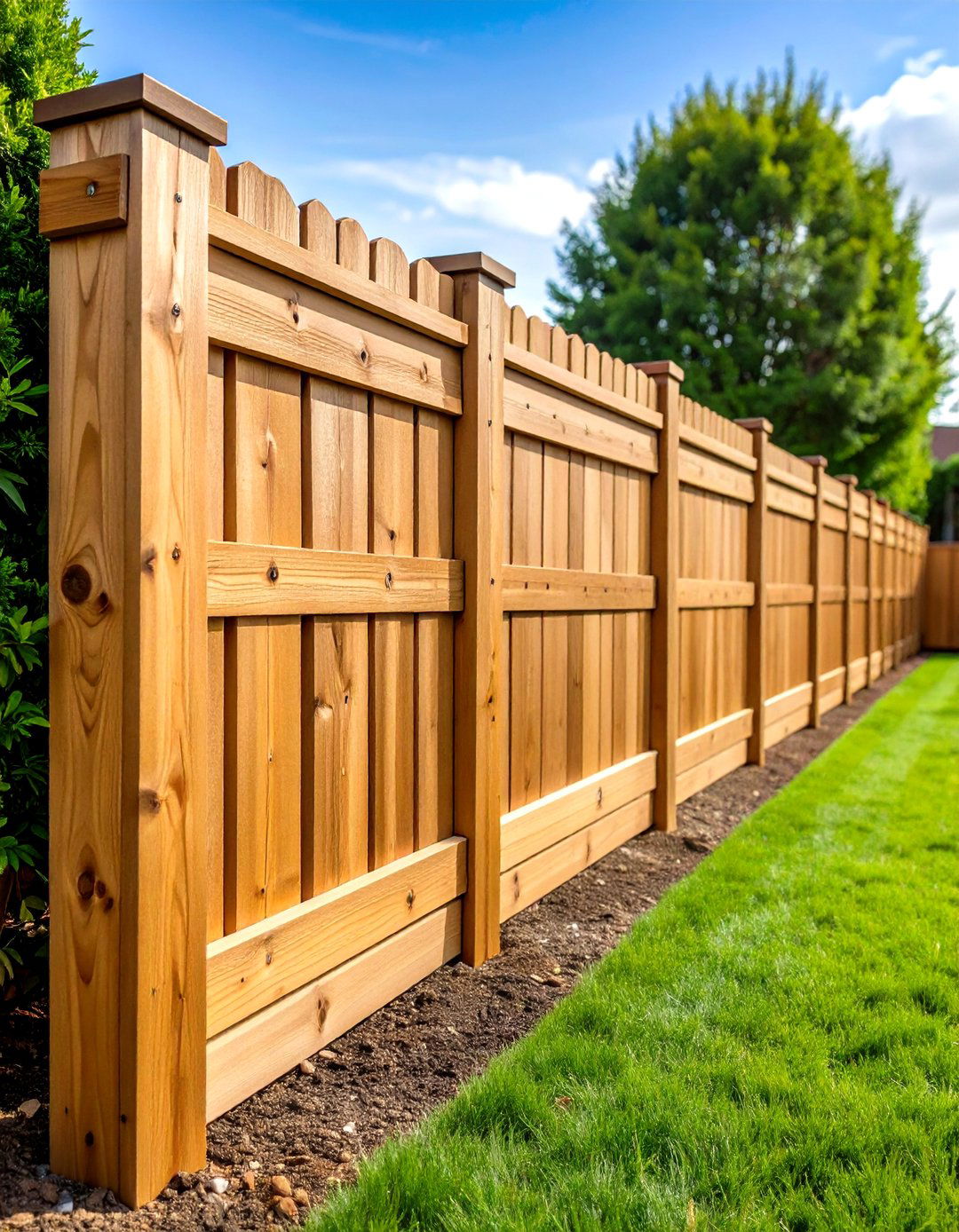


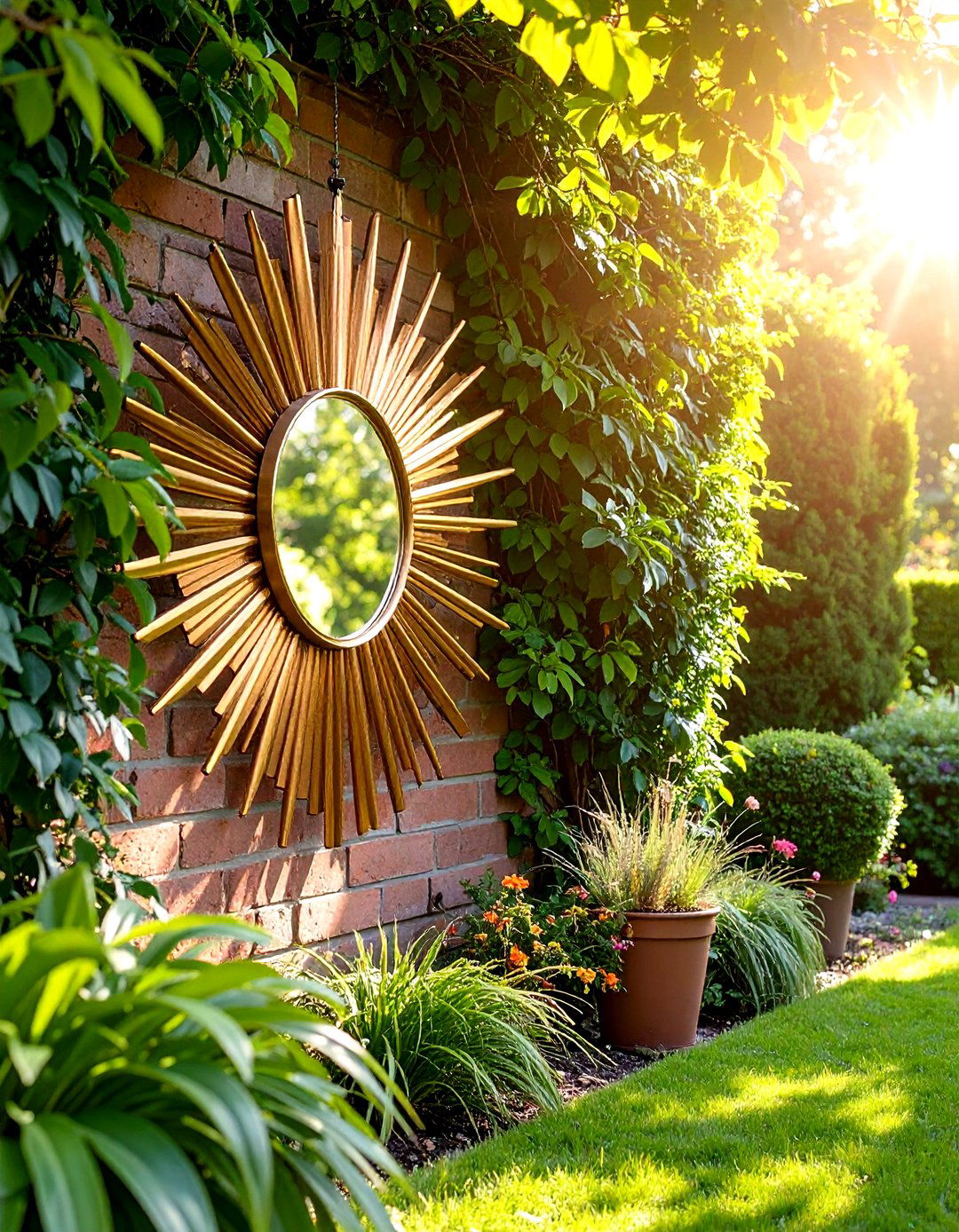
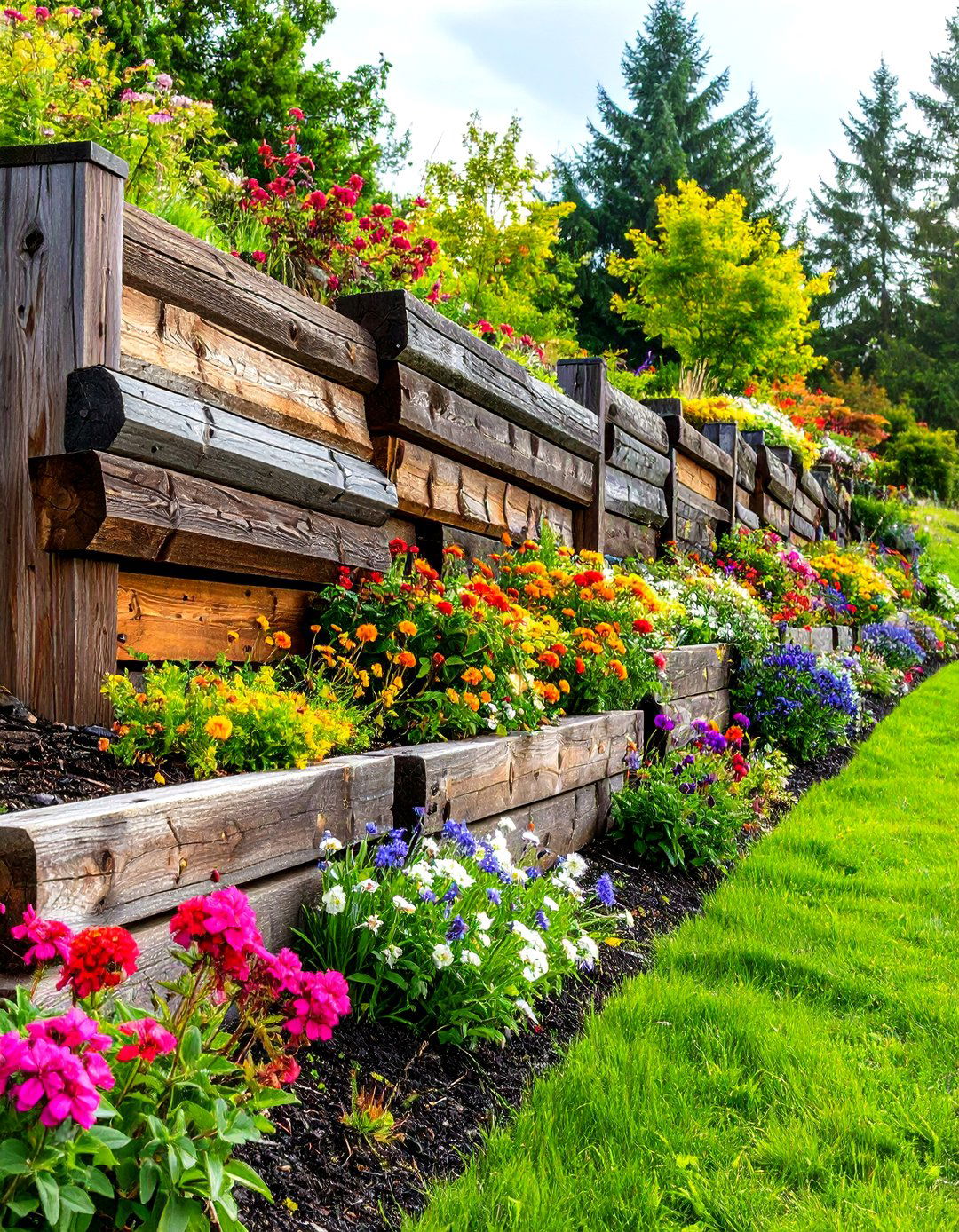
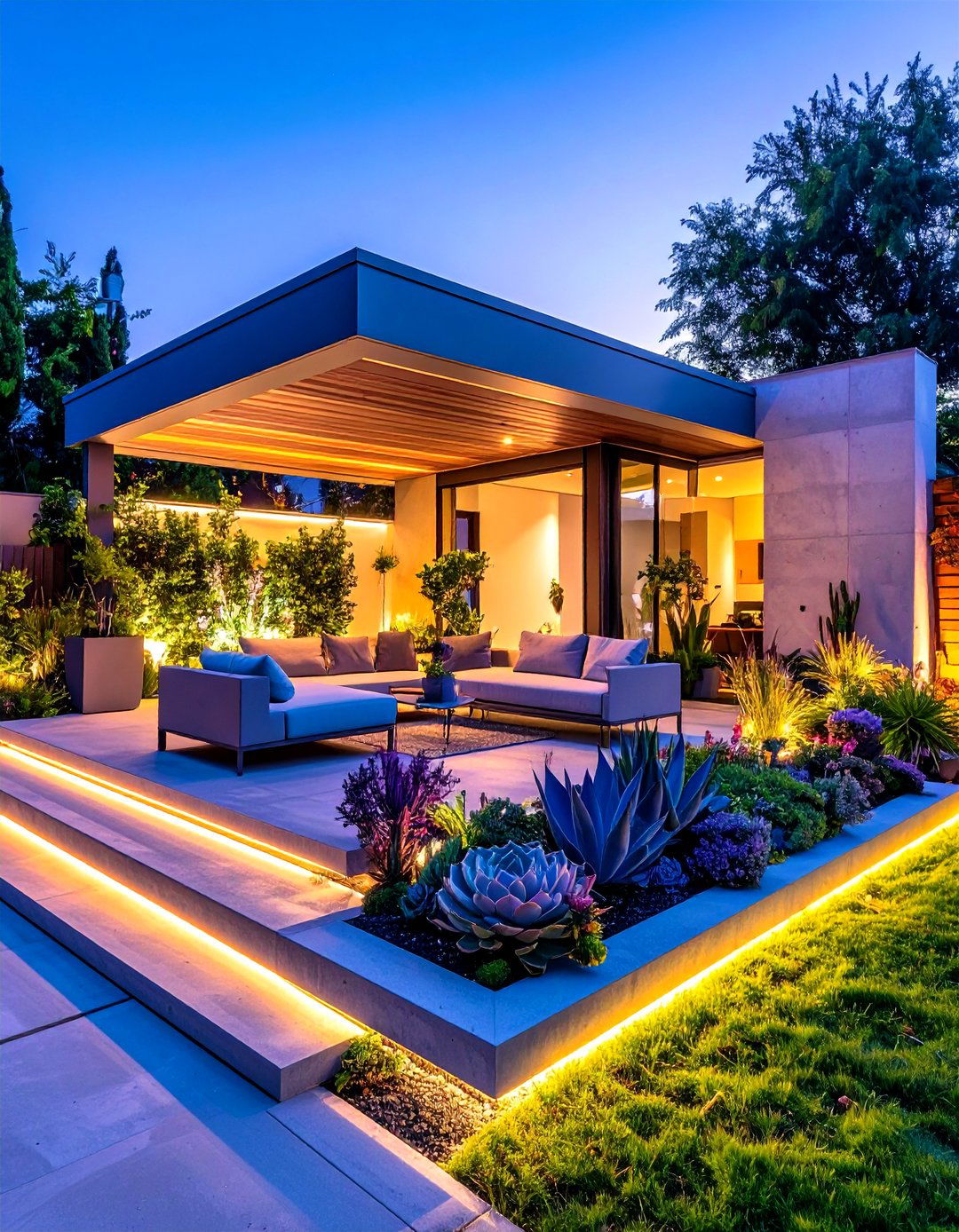


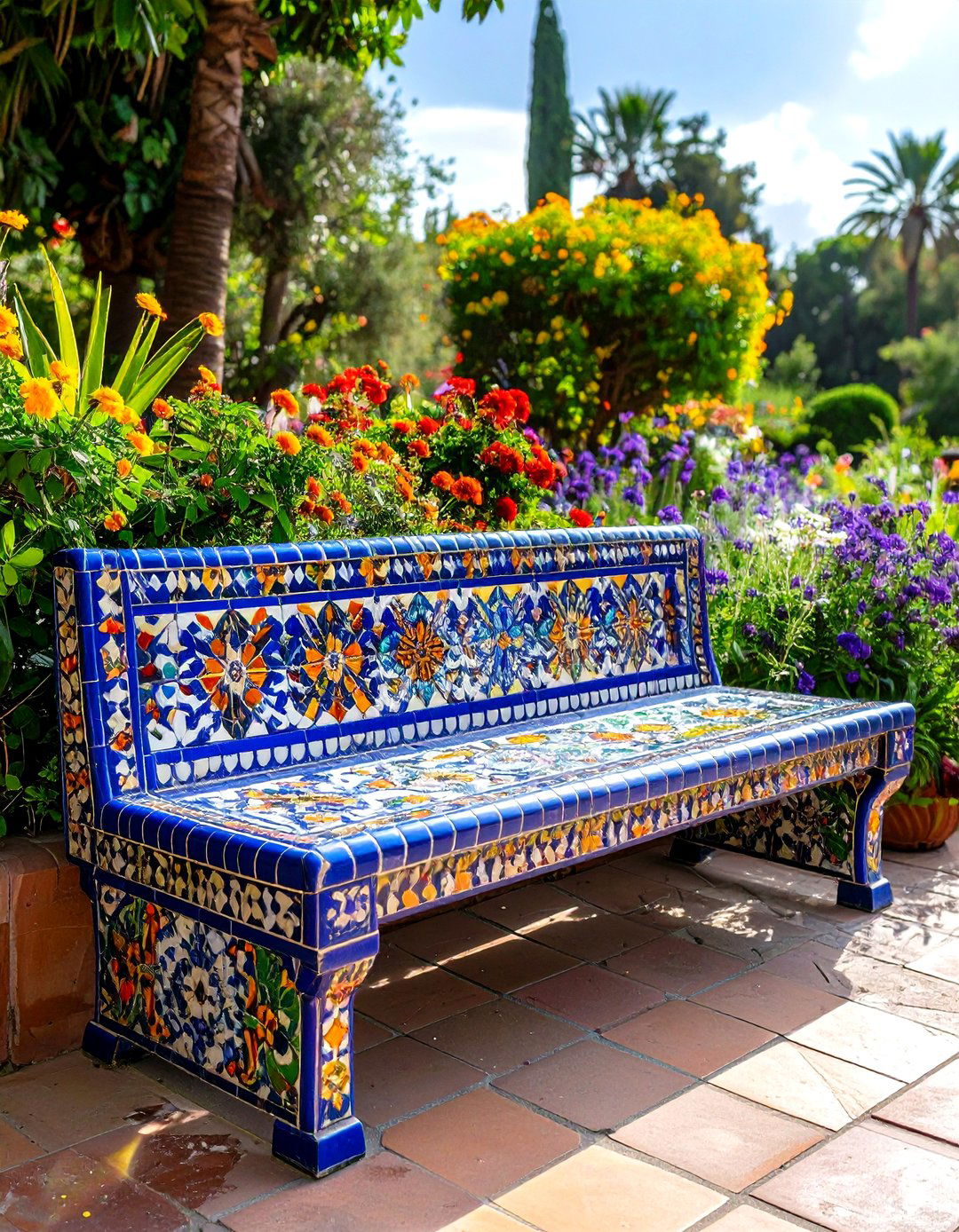

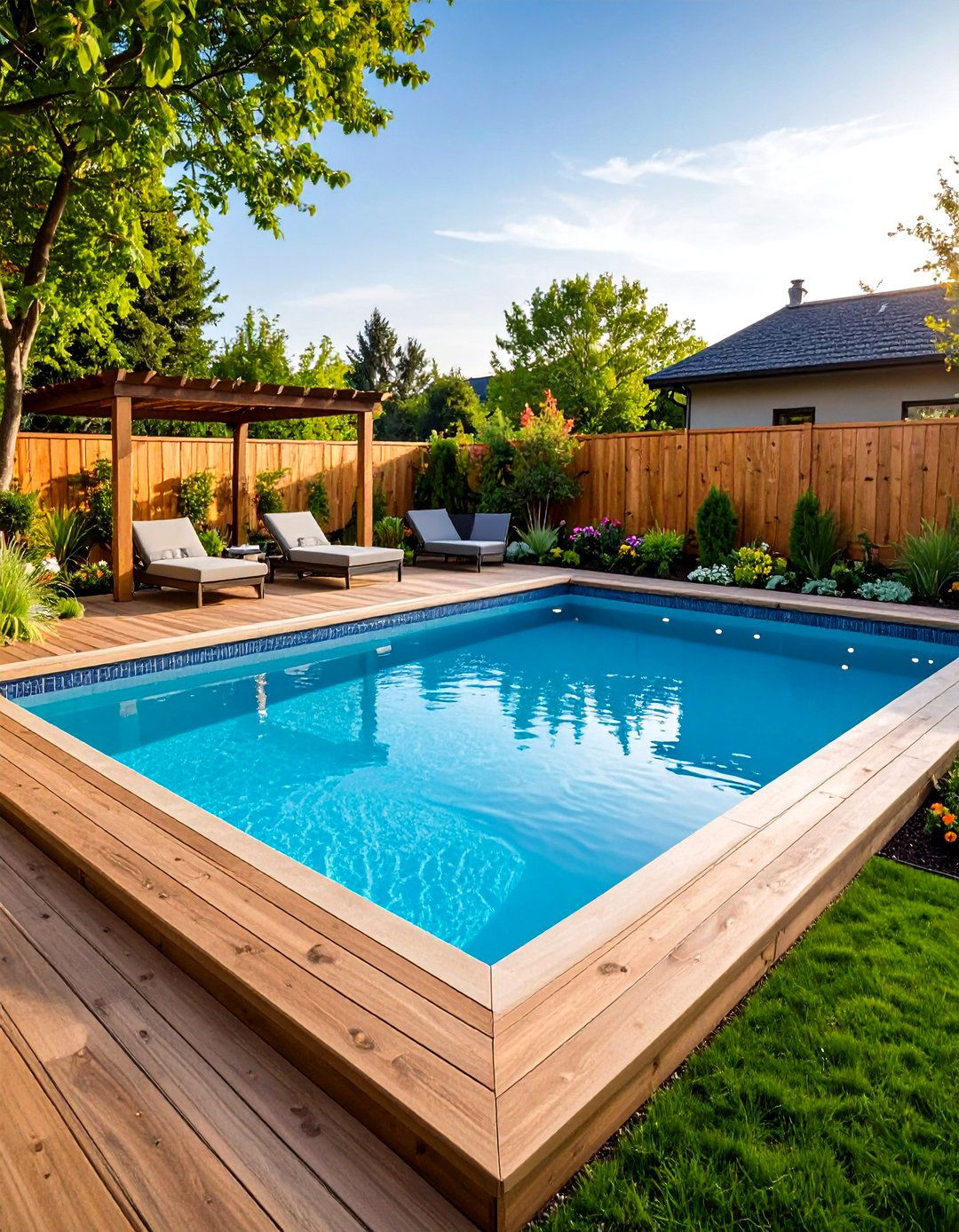



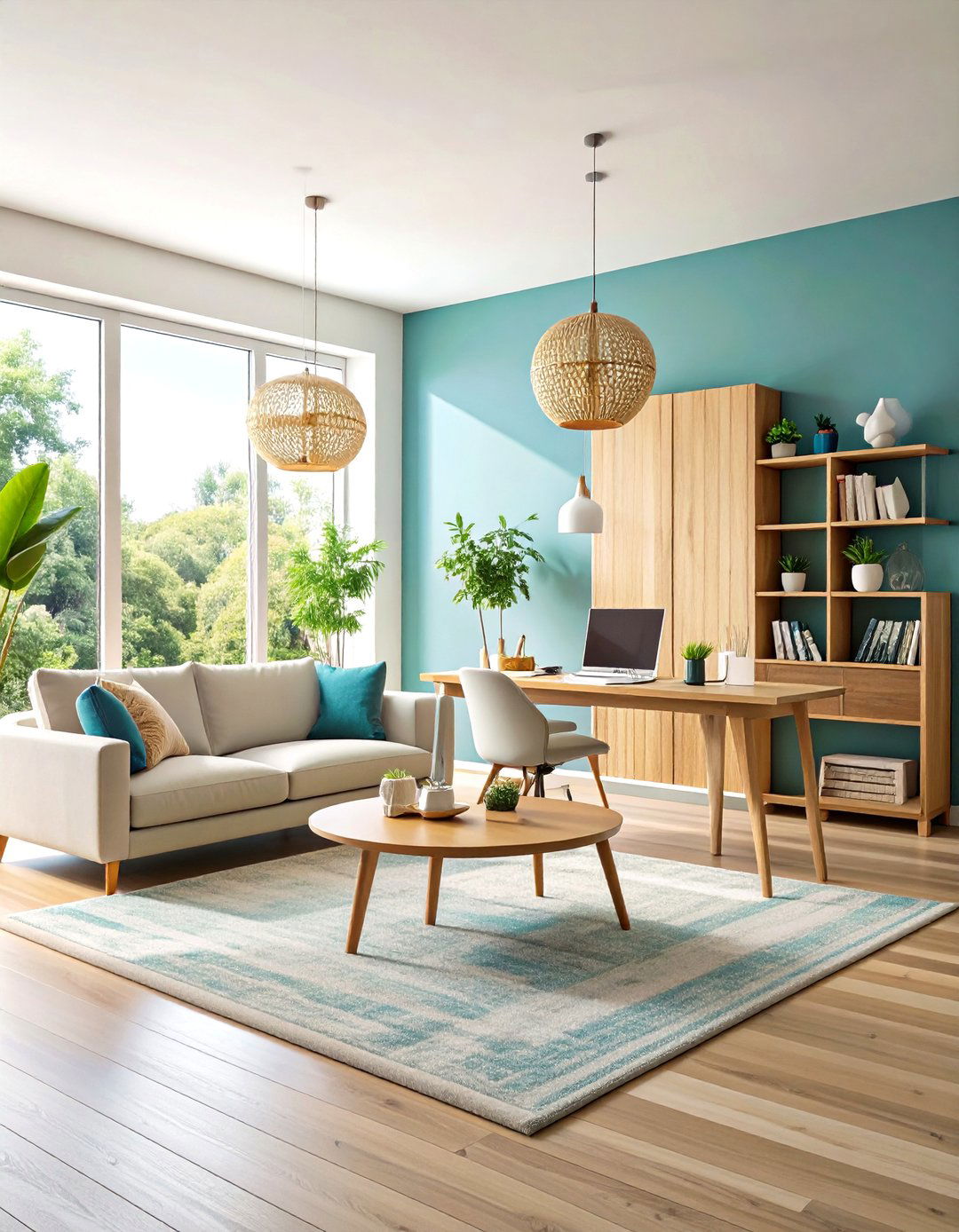
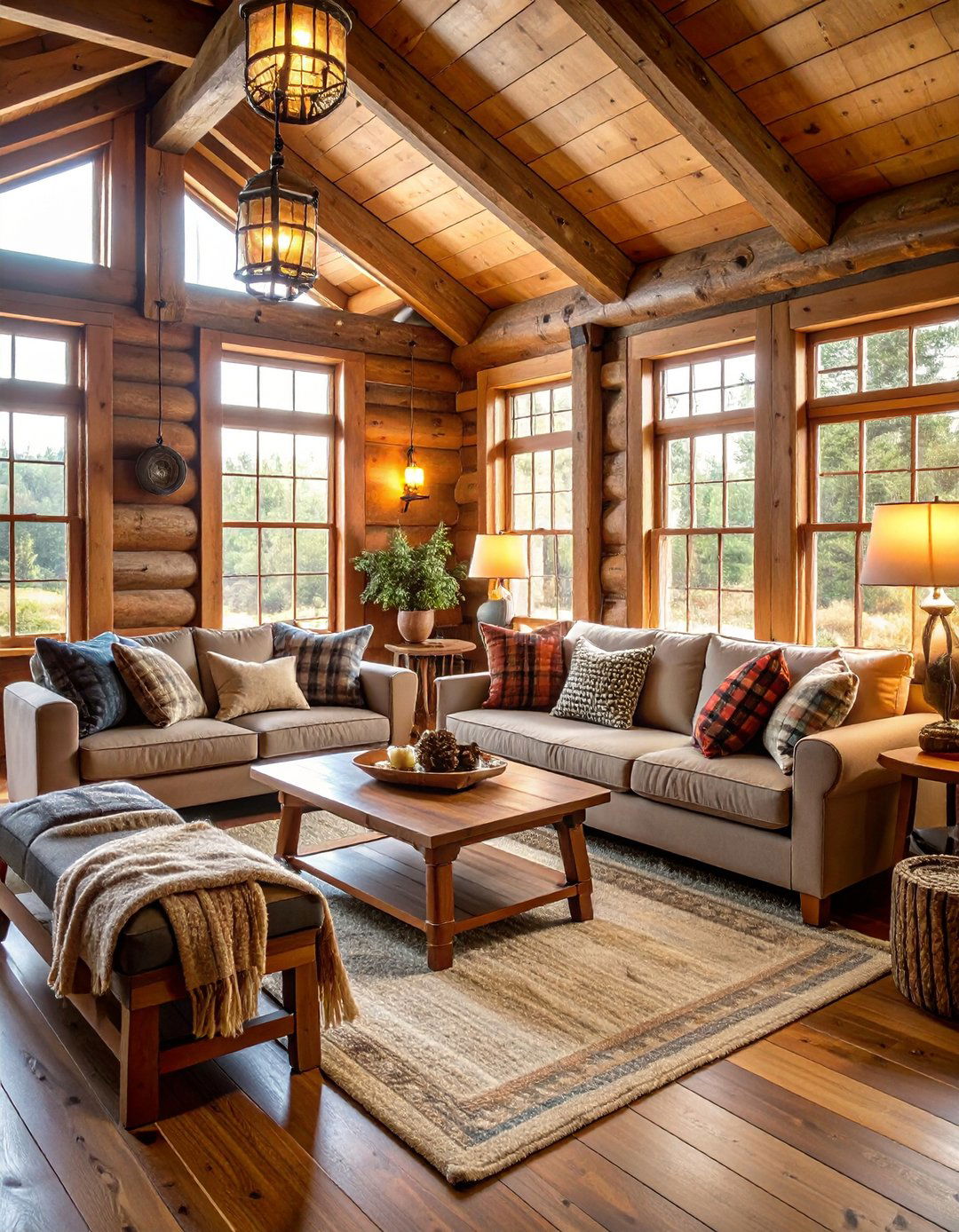

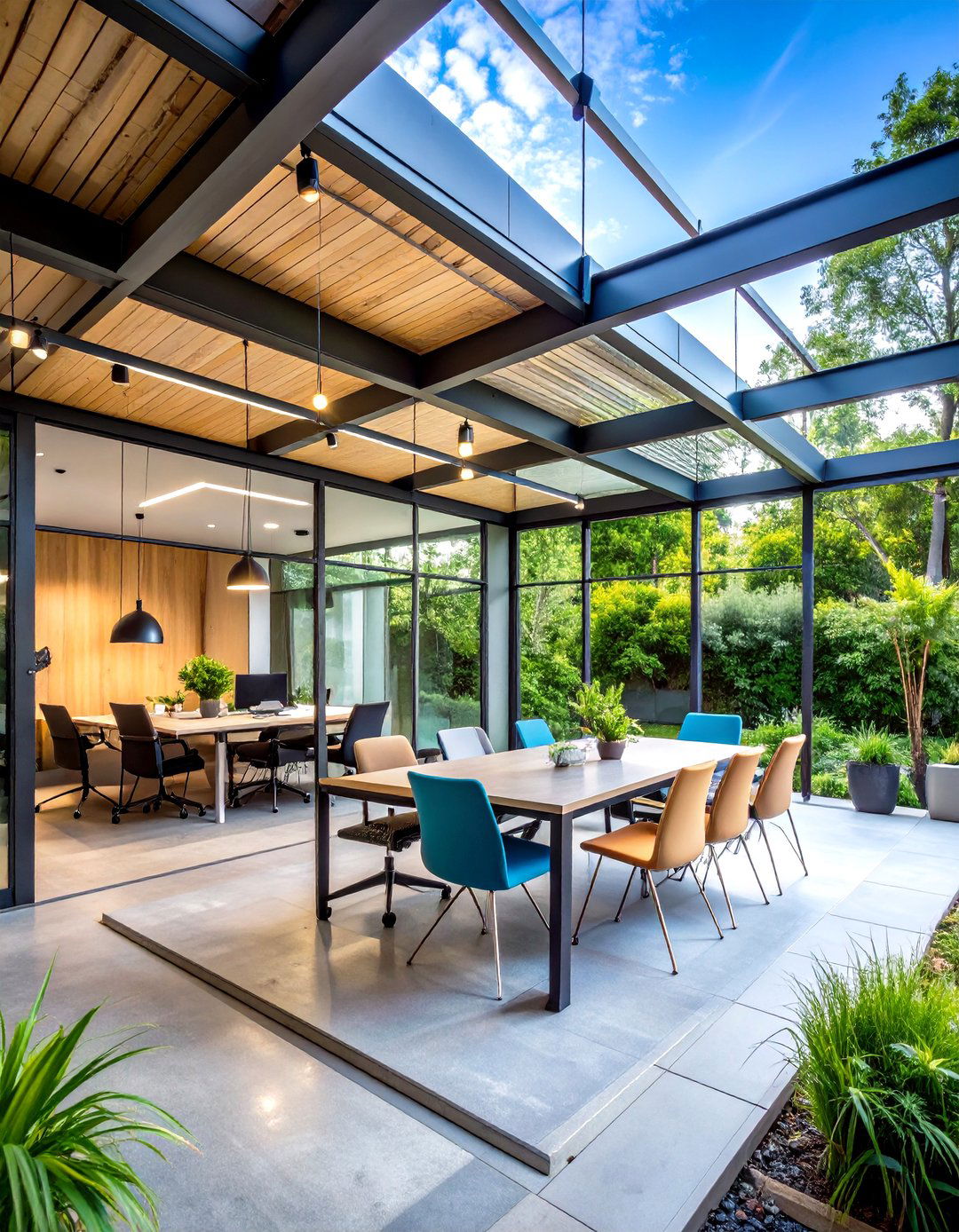
Leave a Reply